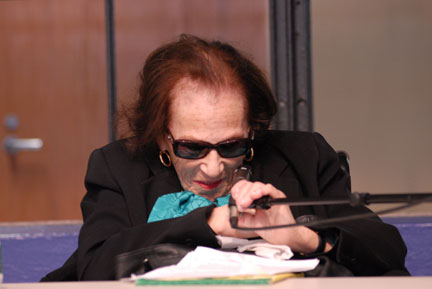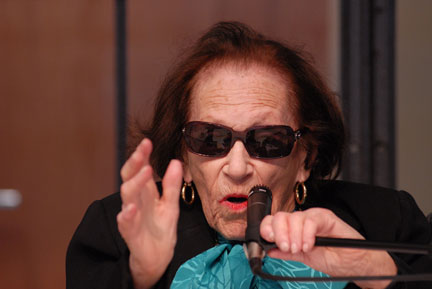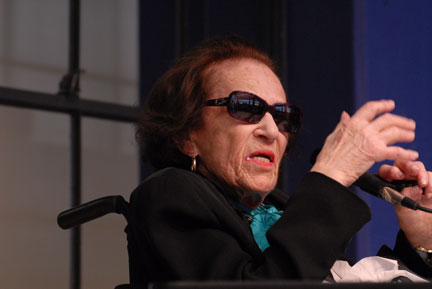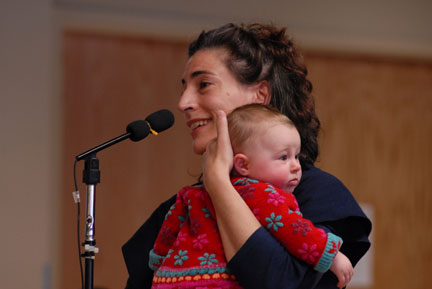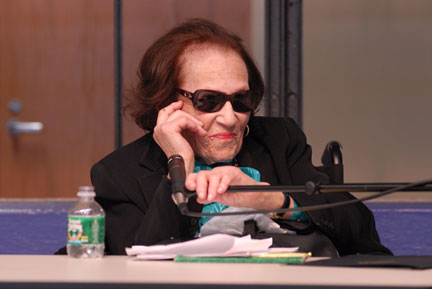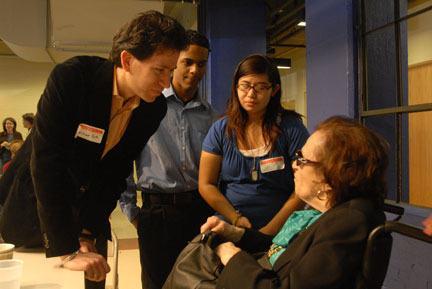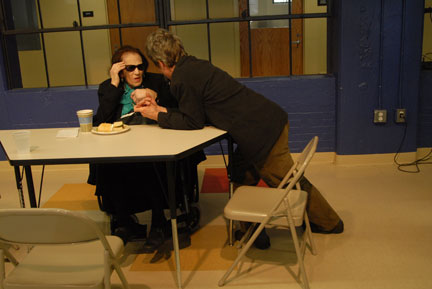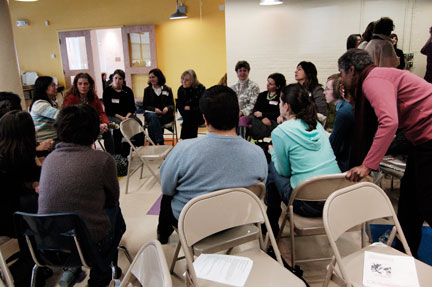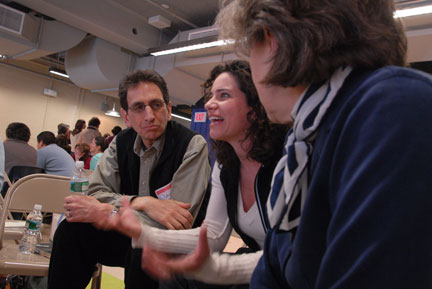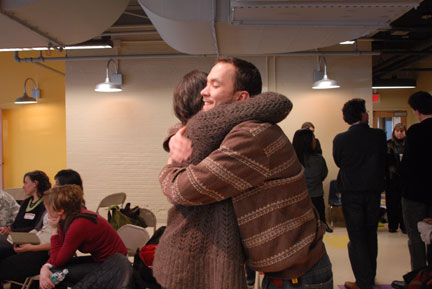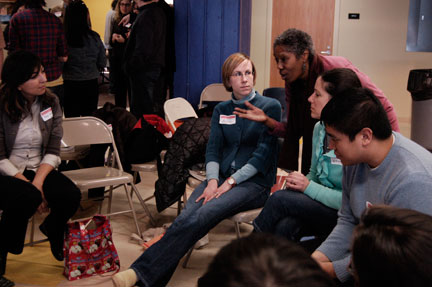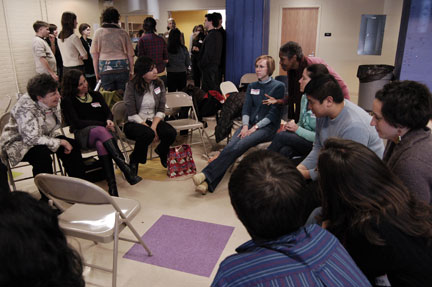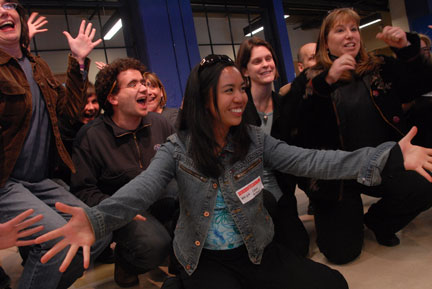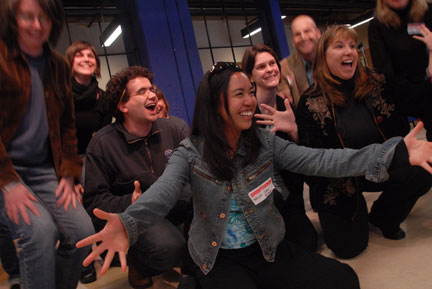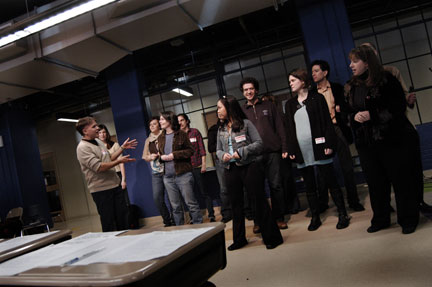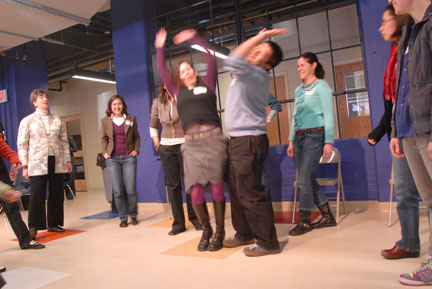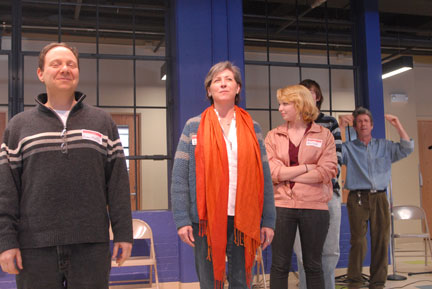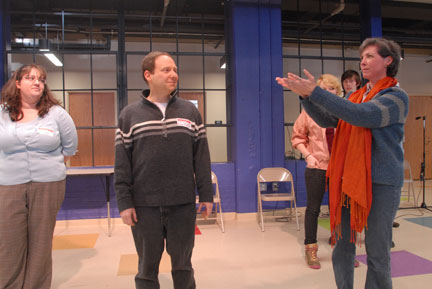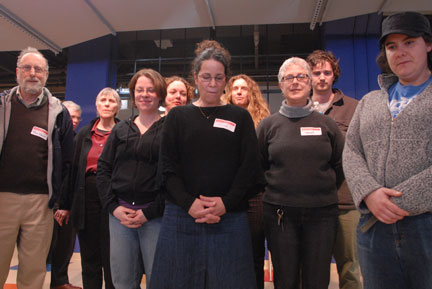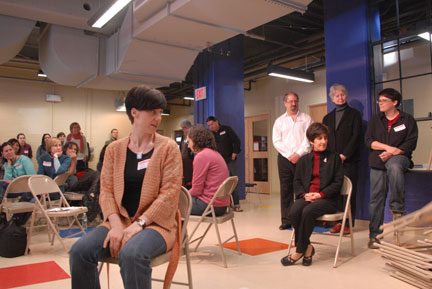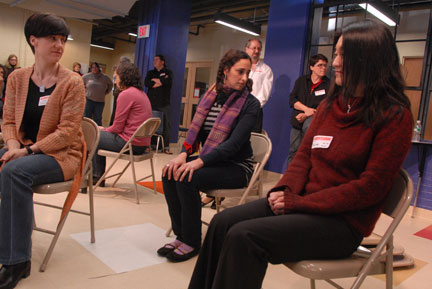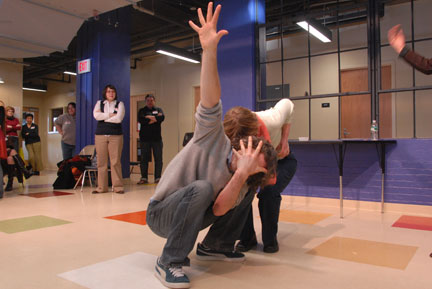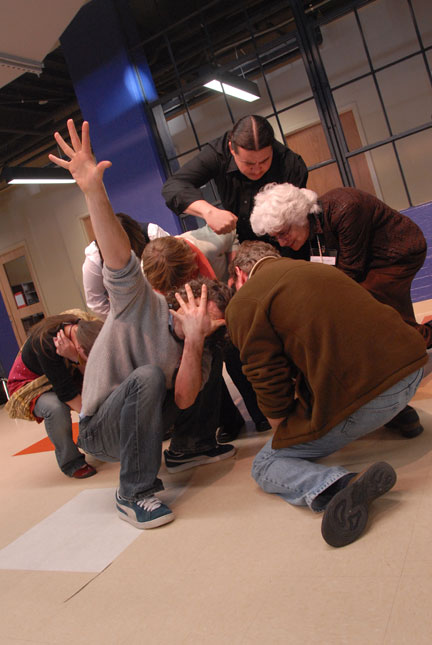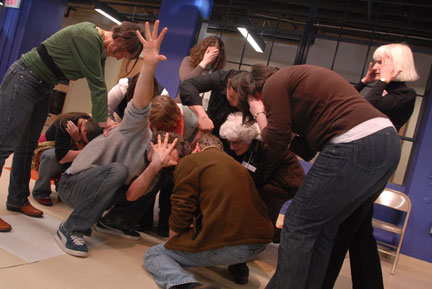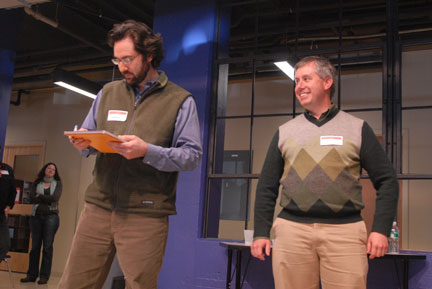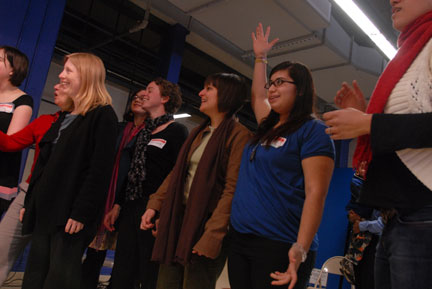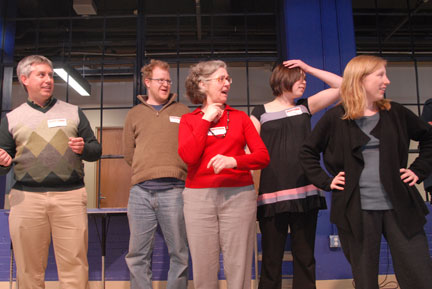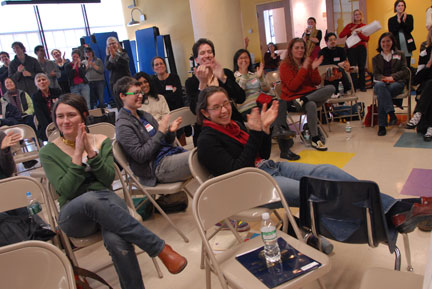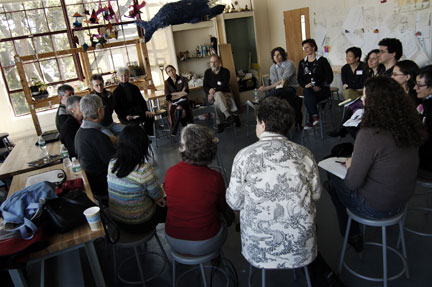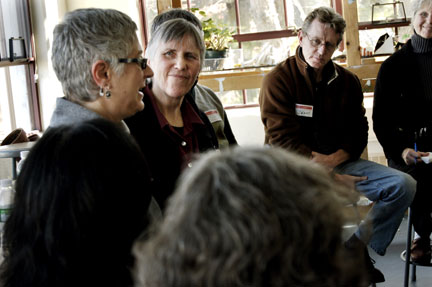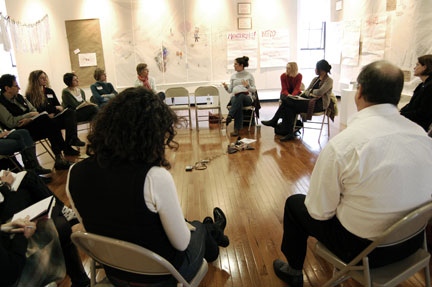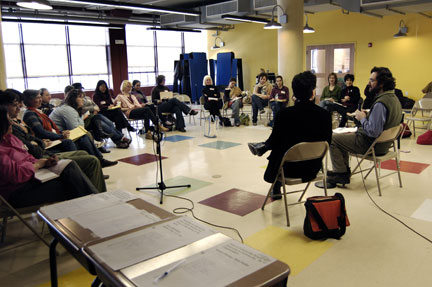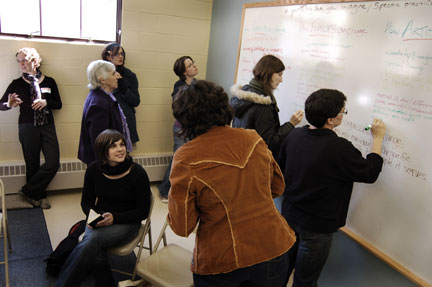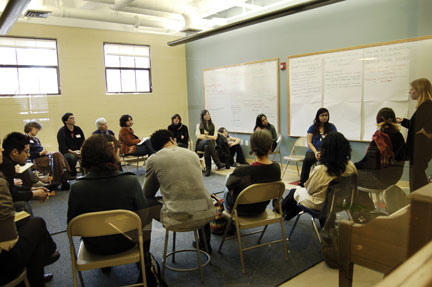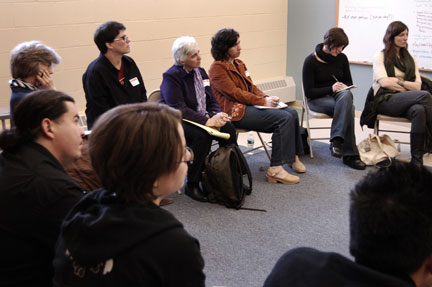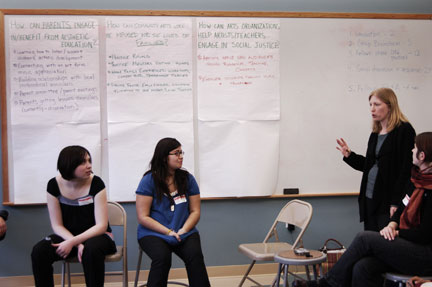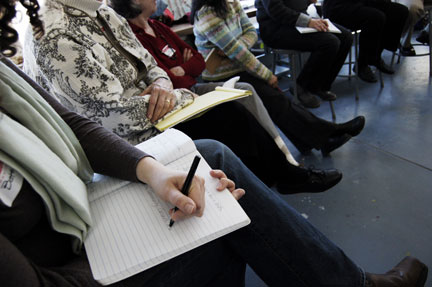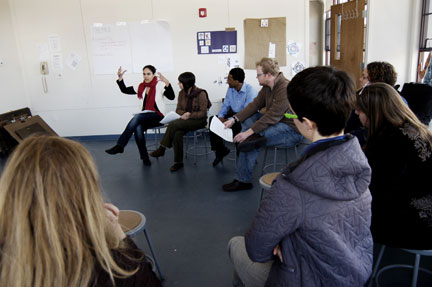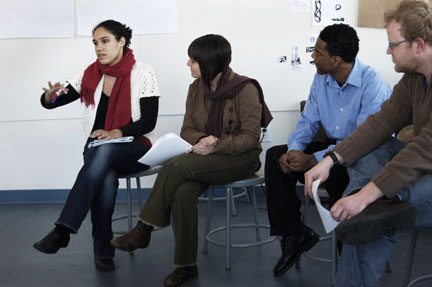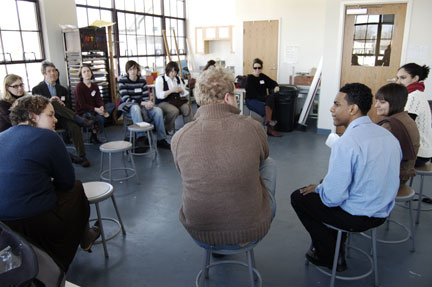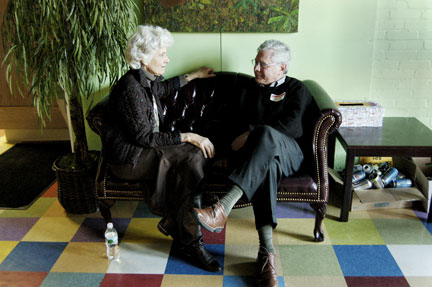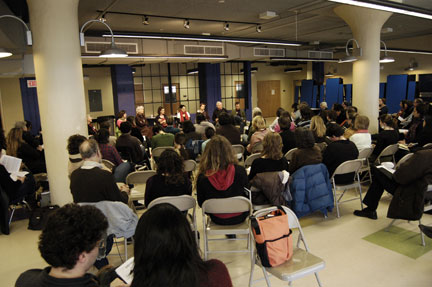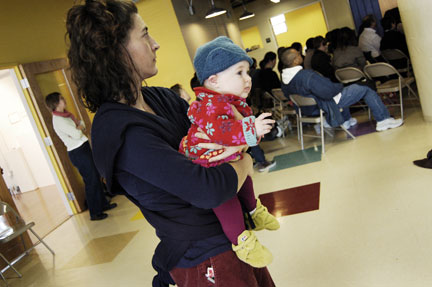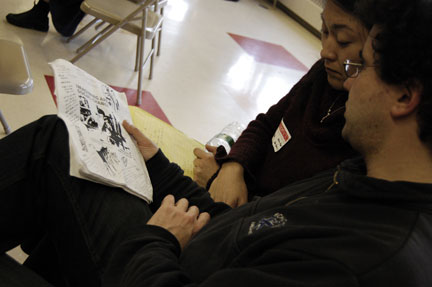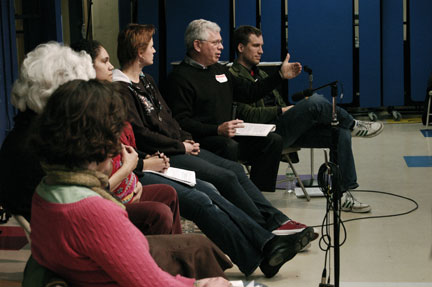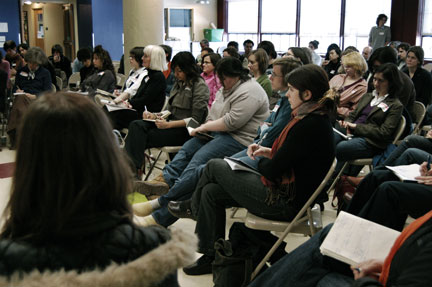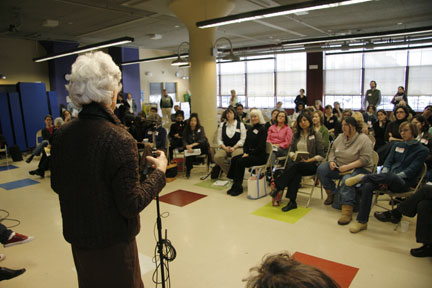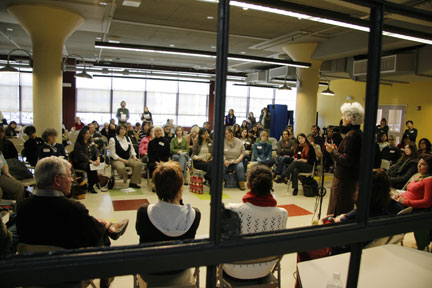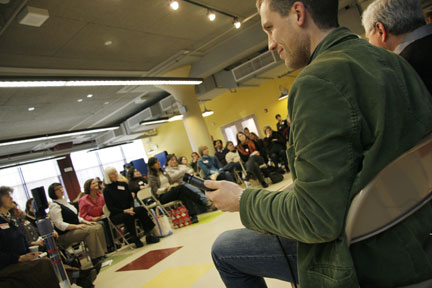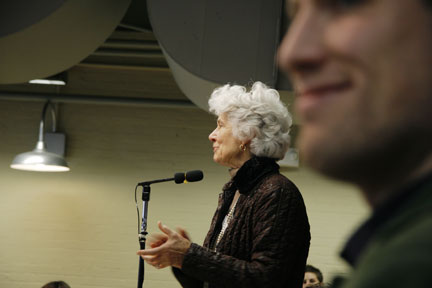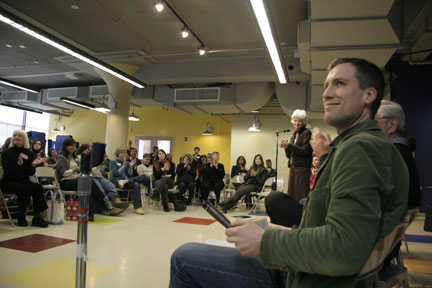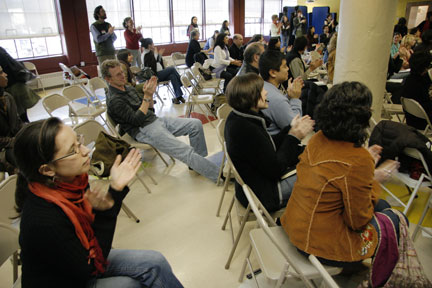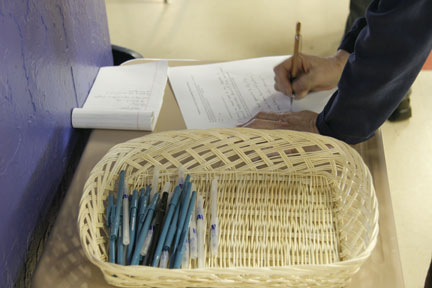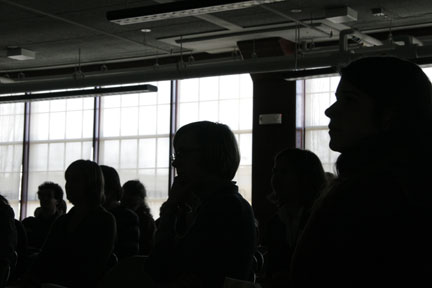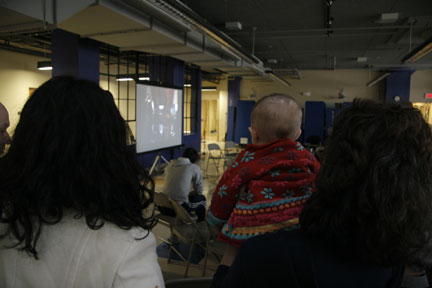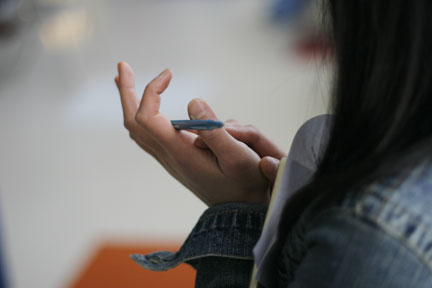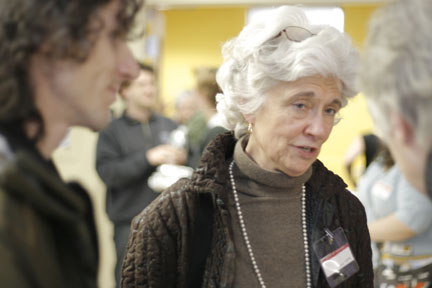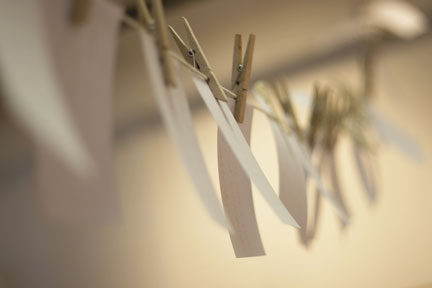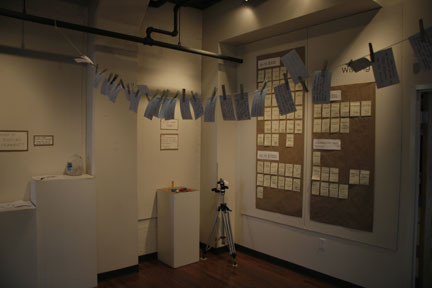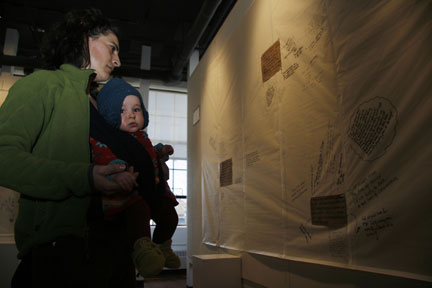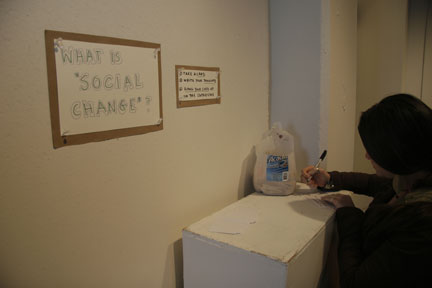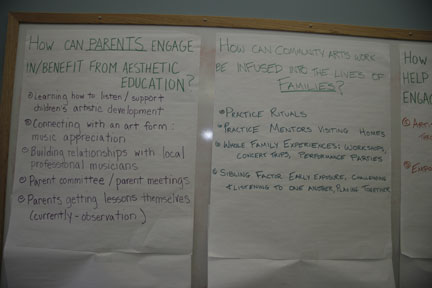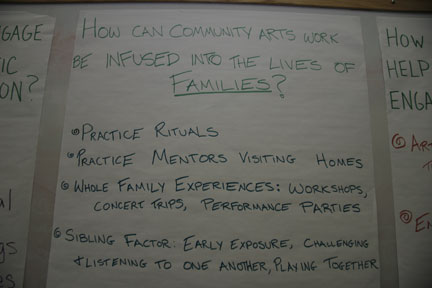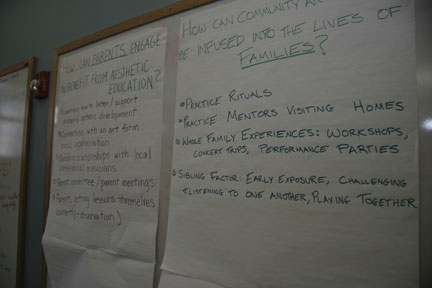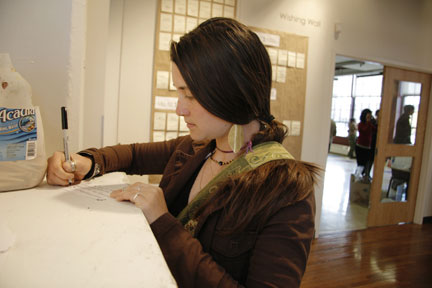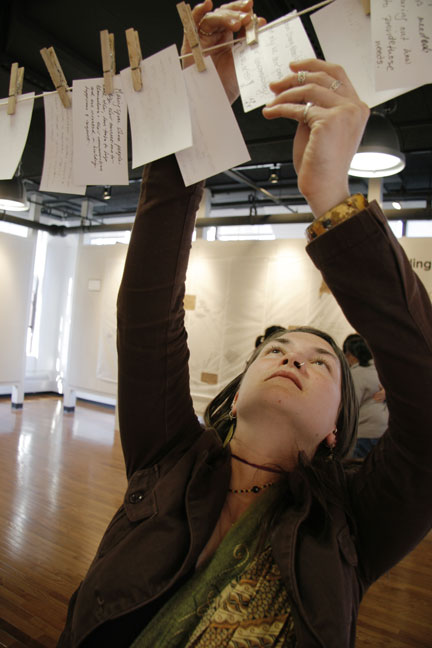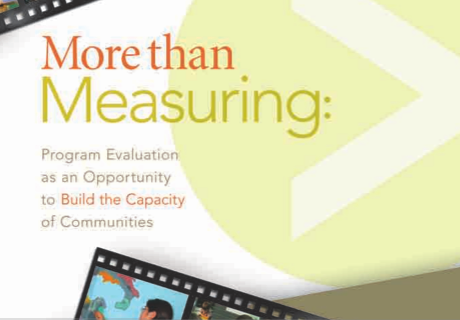Why are you here?
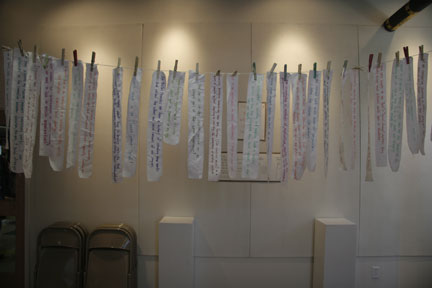
Nathan Fitch
I am involved with theater with refugee and student populations.
I would love to be immersed in a situation where artists and educators discuss social change and how to achieve success in the community via art. I would like to know more about how to empower students through music. What are various "entry points" when it comes to connecting/engaging students?
I've been inspired by Maxine Greene's published work. As an educator - over 3 decades - I am interested in the connection between education, the arts, and social change.
I am interested in learning more about the Providence Arts Community, to see if I could get involved.
Sustainability and funding for residency work. Ideas on how to better prepare and inspire young musicians for this kind of work.
I'm a humanities college instructor and grad student who is researching the roles the arts play in violent large-scale conflict (I'm creating a curriculum).
I am interested in becoming more involved in the Providence community through many of the organizations present at this conference in order to discover how to intersect social change, architecture, and youth as architecture is my field of study. I would like to discuss the idea of seeding such projects on our own.
Our interests vary, but include education and social change, political art and street art, movement culture especially feminism. We also hope to initiate a program at our school about art as a political medium. Topics for discussion: Suggestions for how to bring these ideas to college campuses; how to infuse artistic expression into curriculum.
I have been volunteering as a mentor at New Urban Arts this year and am very interested in learning more about and exploring these topics and ideas, as well as meeting people who are working with/in this in Providence and beyond. I also hope to have some of these ideas and discussions inform some of my future career decisions.
I want to learn more about how to develop curricula that will inspire youth, instructors, and families to change their communities for the better. Topics for discussion: Outreach to understand urban communities. How to inspire excellence in students.
I can't wait to see Maxine Greene speak. I have read many of her articles, and I would like to hear her expand on her philosophy of education.
Opportunity to gather and discuss issues I don't get to examine in my day job.
I write, make videos, appreciate (intensely) music, am an activist an educator dreamer. Want to spend a day focusing on those things.
Role of language (native languages, other languages in the home and family) in making a program/concept meaningful in a school and community; the many cultures and languages represented in Providence's communities; cultural traditions (folk arts) – their disappearance / persistence / significance.
How can we see the creative process as an integral part of the human experience? How can we create this shift in our consciousness?
I've done work with young people and visual art in Boston, Detroit, Oakland, and now Providence. I am hoping to learn more about the work other folks are doing nationwide… and connect with fellow travelers. Topics for discussion: Intersection between documentary/media arts and youth development arts
At Ballet Memphis we have a history of creating new works that reflect the culture and the social concerns of our region. We are looking for new ways to incorporate these practices to engage our audiences and work with our youth.
I am a violinist and an urban educator (high school social sciences). My family are all involved in community arts education. Maxine Greene visited our house when I was 10.
Can social change be measured?
Balancing bringing something new and foreign (like classical music) to a group of people/neighborhood without imposing or reducing the importance of their existing culture
Since RI is such a big small town, I am very interested in participating in this event. Art into the community – reaching a diverse population in a very inclusive way.
I am a graduating senior at the University of Rhode Island. I have studied marketing and philosophy but hope to work in arts management. I hope that I will one day run a museum or art organization that is socially aware and responsible. I think that this conference is crucial for that part of my education. Topics: Programming ideas for gaining audience, making arts orgs more welcoming.
I moved to Providence from Seattle in September of 2007 to being graduate studies in art + design education at RISD. Over the past six months I have come into contact or learned of the amazing youth arts organizations in Providence. This conference is a great opportunity to further connect and learn from these wonderful organizations.
Well, for one, I'm in a book group that's reading Maxine Greene right now, and we're all really excited to hear her speak. Topics for discussion: I'm interested in income stratification and discussions of class in relation to arts education.
I am beginning my own string quartet residency and everything about the conference will be a great influence on that.
Art and social change is exactly the combination I want to pursue in my career. I'm currently in photography school and trying to find some direction. Social change that is not only related to urban youth. What about affecting larger issues of racism and class ism? What about women's issues?
Topics for discussion: How to get from good to great. Serving the needs of students, artists, and teachers simultaneously.
I am interested in the mix of "big ideas" and "big thinkers" your conference offers along with praxis. Putting a value on creativity (business values it, yet arts programs frequently feel pressured to present themselves in instrumental terms, e.g. raising text scores). Can our schools be instruments of social change or do we need to look to outside organizations? Reconciling "art" and "change" missions.
I would like to learn about alternative approaches to teaching musicianship and citizenship to youth of all ages, especially via inclusive, democratic community groups. Topics for discussion: the promise of community street bands. How to start my own afterschool band program.
I am interested in exploring the question of how the arts can inspire/create social change in our communities – also interested in seeing the Community MusicWorks model in action and discussion these issues with like-minded individuals. Topics: I'd be interested in exploring the question of how to encourage, support, and nurture activism in young people – as well as how to inspire young artists to become activists in their communities.
I am a photographer and an educator who utilizes images and narrative as vehicles for social awareness. I work to create art that builds an appreciation for the value of diversity. I'm interested in building a sense of community with others doing similar work; I'm new to Providence and want to build colleagues in this field. Topics: The visual arts and their ability to cultivate social change.
New Urban Arts has become a huge part of my life in the past two years. I would love to meet and talk with other people in the community who are doing similar things, and also start to think about why the work I do at NUA is so important to me and how I can go further with it. I'd like to talk about the negative views that adults often have of high-schoolers, and how we can work to change those perceptions.
In my current work with inner-city preschoolers, I treat the children like authors. When I taught music to young children, I taught them to be composers. I am eager to listen to Maxine Greene, whose writings have sustained me when I have worked amidst the opposing philosophies of the public schools, which measure childrens' growth by standardized tests. I am eager to meet people working in the field of social change and the arts to learn how this vision can inform my future work.
How does the Presidential race relate to the issue? Where do the candidates seem to stand? What does a model look like, feel like, that encourages the arts and social change from a number of directions (horizontal and vertical) simultaneously?
As an educator, I am constantly searching for ways in which my students can impact and bring about change within their communities as well as become aware of the forces that are bringing about change via artistic expression, political mobilization, social activism, or physical engagement. 1) The voices of children as forces for/behind social change. 2) Imagining Arts – beyond the "Art" we're comfortable with. 3) Challenges and suggestions for building effective community-based arts.
I need to be connected to other local and regional folks/groups that are working with similar age children/youth around the arts. I was very happy to see/read Arts + Social Change together, usually they occupy much different worlds here in Providence. I have deep respect for the artistic and community work that CityArts, New Urban Arts, CMW, AS220, etc carry out in and around Providence, and this would like to learn more about how the students families and staff of CP/Prep+ can tap into the resources (people, classes, etc) that these organizations offer. Finally I am very interested in making the title of the conference a stronger reality in Providence, both in conversation and in practice/action. Topics: Building or tapping into the artistic capacity of low-income peo0ple people of color immigrants the homeless or out of school youth of color.
I am a visual artist who is also socially concerned. I am interested in meeting and hearing from a variety of artists and how they integrate their social concerns into their lives and work. As a teacher I hope to bring some inspiration back to my students.
I want to be around a group of people who are also committed to creating art and have a deep faith in its power and necessity for every human being's life. I want to learn about what they do, how they do it, how I could work with them, or use their ideas, etc. I want to learn from being around Maxine Greene (I'm reading her book right now "Releasing the Imagination" and I'm blown away by its WISDOM and truth). I want to talk a lot about how to make creative educational experiences for children (like dance classes, or music lessons, or art classes, etc.) MORE about social realities, how to make the creative experiences also about awakening to these social situations and learning about power and possibility for agency, etc. I'd like to come away from it with concrete tactics/methodologies/ideas as well as a network of people to continue the conversation with. How to bring discussions of social realities into the music classroom. How to bring discussions of social realities into the music classroom. How to enable kids not just to learn instruments and how to play other people's music, but how to become their own creators of music, writers of music, improvisers, etc.
I have been advocating for a higher standard of entertainment for children and I've been including messages of social change in my performance art since 1978 - this is a much needed conference.
How to pitch the arts to a new generation of politicians. Cutting through the rhetoric. Educating schools to find other sources of arts funding. Why the arts increasingly bring in tourists and yet are less popular in public and private education. How to cultivate the next generation of young artists in a country that makes it so difficult.
Expanding awareness of conceptual frameworks and methodology that draw connections between art and social change; Examining race and class privilege in the context of community-based arts – how can artists help communities stop the tide of gentrification?
Partly because I have been following CMW's evolution closely and partly because Maxine Greene is my hero! Topics: I'm definitely interested in what can be done within the school day, and within the constraints of public schooling as it is today, as opposed to looking purely at after school programming.
This conference brings these two paths together - in the town I am moving to in September! Topics: Importance of mentorship in art making. Methods of evaluating quality in youth arts programs. How to use the language of social change with funders. Youth/Alumni Leadership Roles.
I have been an artist/activist my whole life. This seems to be a great gathering and I'm sure I will be inspired by it. When collaborating or using volunteers group dynamics become important. Any guidance on this would be great!
I am interested in investigating other fellowship programs, learning more about the philosophical basis of CMW and similar organizations, and best practices in this field. I am also excited to see such a varied panel, and will be eager to hear about their experiences around research. Partnering with urban school systems – makers of arts-rich environments, assessing change and student learning. Inspiring core values in fellows and partner organizations and schools.
I am especially interested in evaluative strategies for measuring the impact of arts. Also a networking opportunity to share ideas with colleagues. Topics: Resources for educating educators. Using classical music to affect social change.
I am very interested in making art a collective experience toward justice. Topics: Ways to encourage/inspire people who have never considered themselves artists.
Having recently joined the youth development world in Providence, I'm eager to get more of a glimpse of the exciting work going on here. Topics: Connecting individual experiences to systemic issues -- the transformative impact of the arts on individuals is clear, but how does that collection of experiences add up to larger systemic and social change?
Extent to which different media have different effects; Wanting to meet other practitioners who are using creative media and to share ways different forms speak their messages, to whom, and how to grow audiences' reception for these forms; artistic and collaborative relationships, how to facilitate ethical and equal partnerships between project collaborators (artists and community partners); addressing / rebalancing power differences in artist-initiated community projects
I'm a young musician with an interest in education. Topics: Strings in public schools, musical languages: What music to teach/play and what does it mean.
My thesis (and philosophy of teaching) focuses on the benefits of community involvement in education and art education. I am an artist and art teacher committed to getting students out of the classroom and working and learning from their community. I am coming with an open mind and plan to listen and learn. I am anxious to visit sites and meet people. I will be taking notes about the benefits for at-risk students to be involved in community-based education. I work with at-risk students.
I strongly believe in the transformative power of art and I am looking forward to connecting to other individuals and organizations who share the same beliefs and to hear and discuss what is going on in the field. It never used to be a field. Topics: Even though the hosts are youth organizations and there will be a focus on looking at the work of these organizations, I am hoping that there will also be discussion around other "populations" – homeless adults, people in recovery from addition, people with HIV/AIDS, etc.
I am an artist, educator, and administrator and have been working in the arts for 10 yrs always with a personal (and professional) dedication to social change. I am about to transition into a graduate program and in a few years will be ready to enter the workforce again. I see this conference as an opportunity to network as well as get my own cerebral juices flowing re: the issues, ideas/practices which I find most invigorating.
/menu |
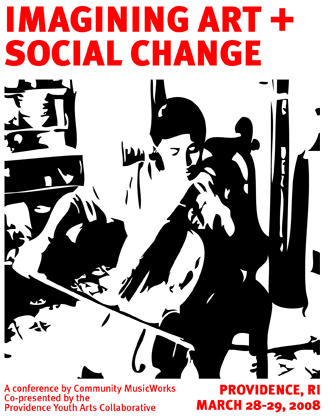
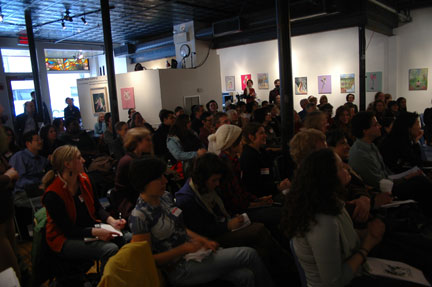
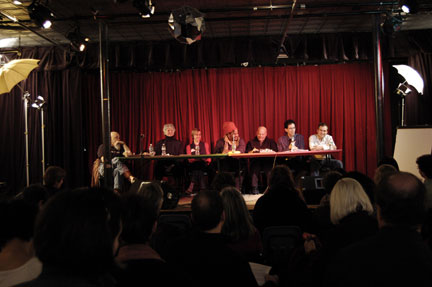
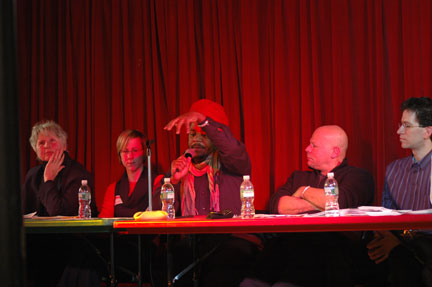
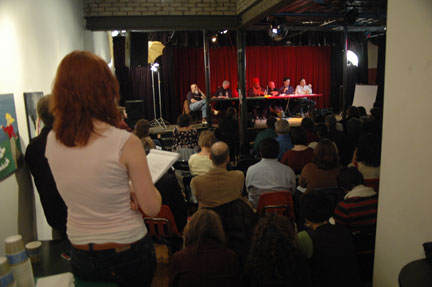
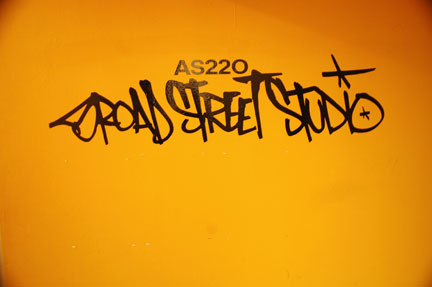
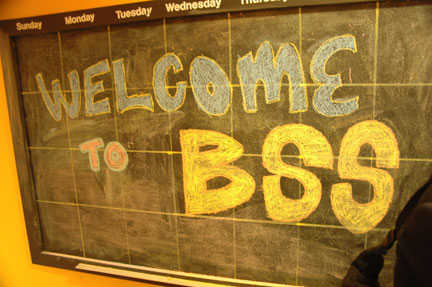
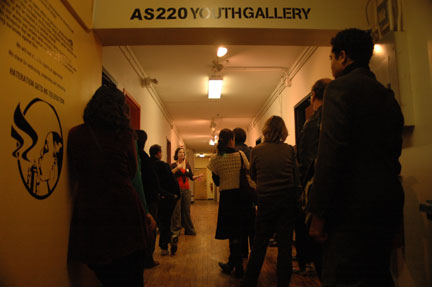
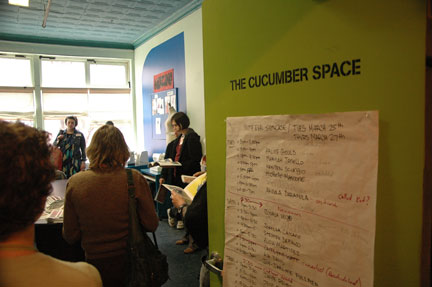
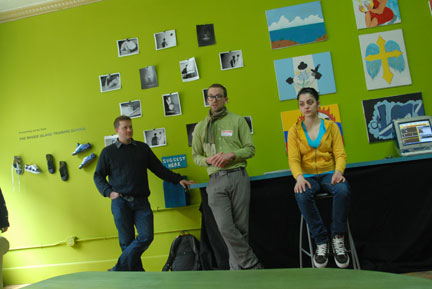
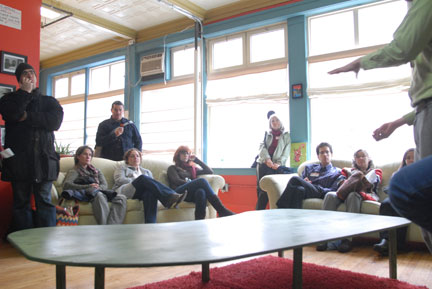
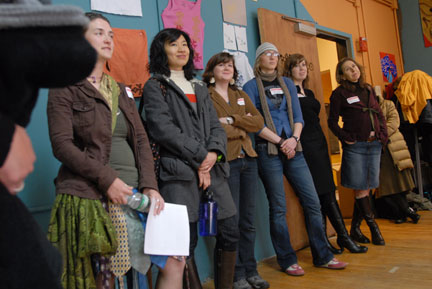
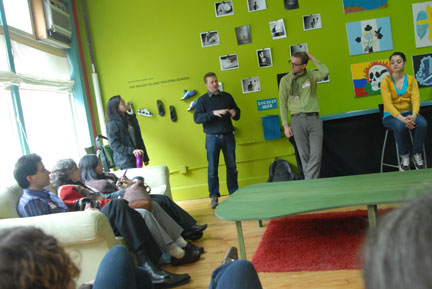
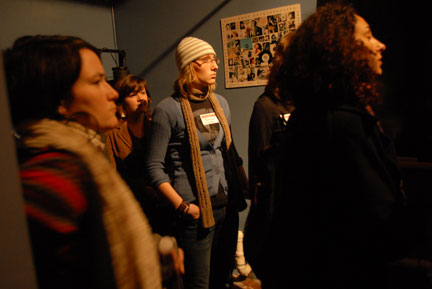
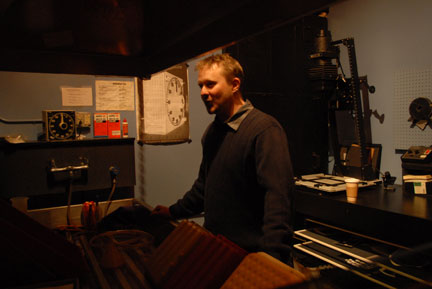

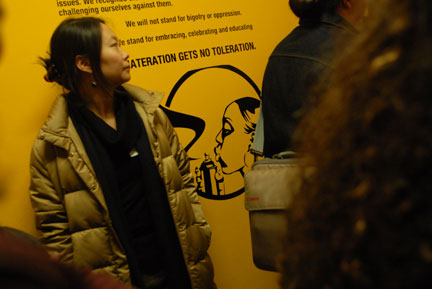

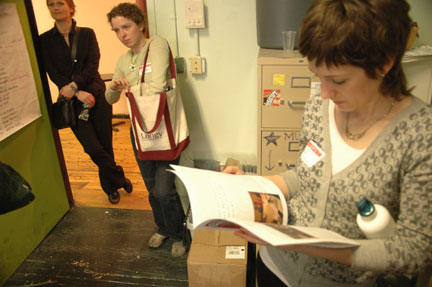
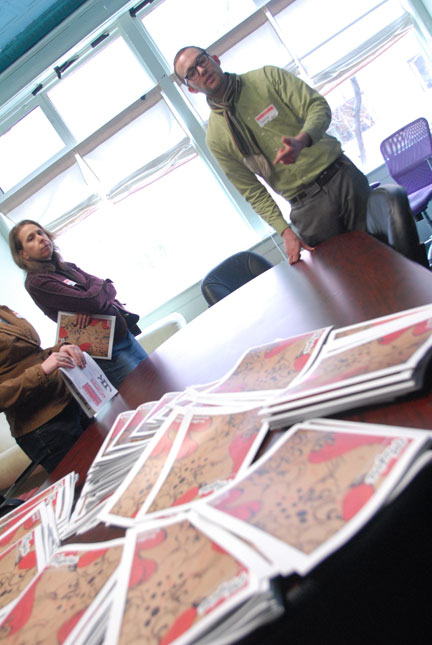
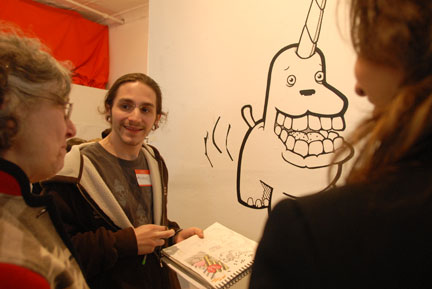
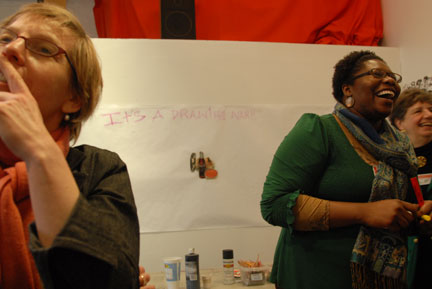
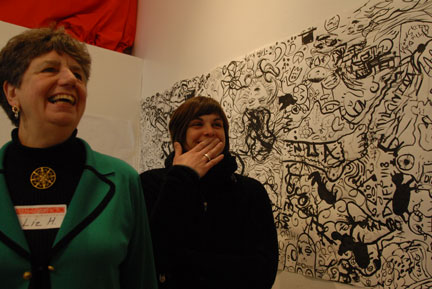

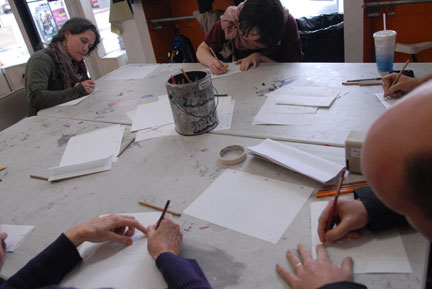
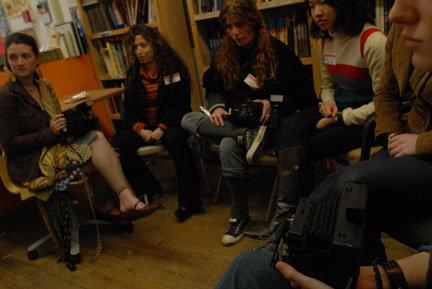
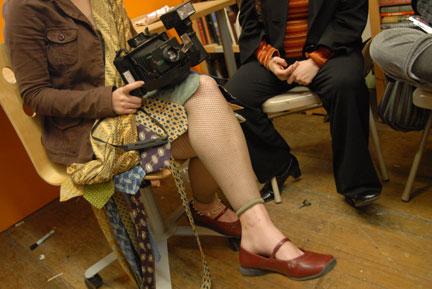
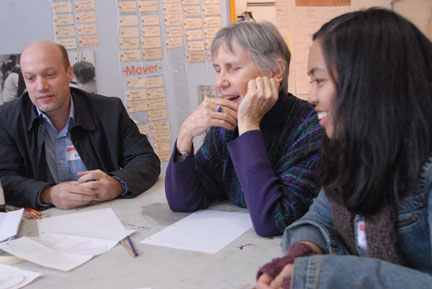
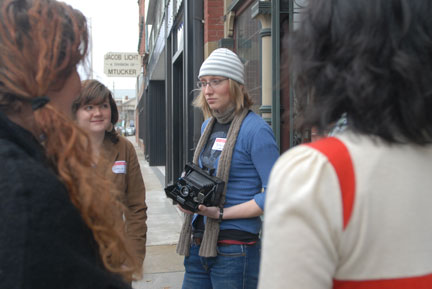
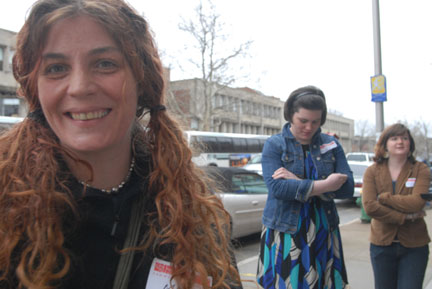
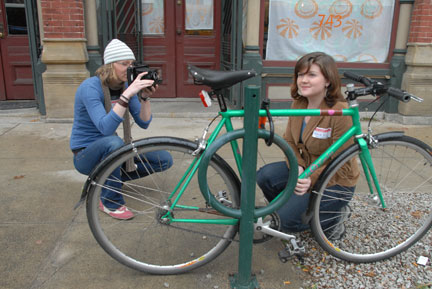
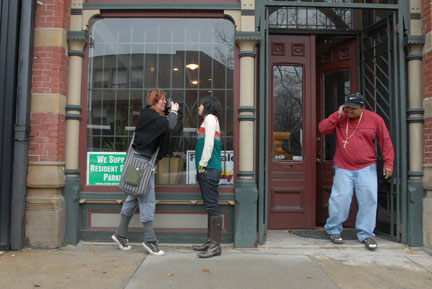
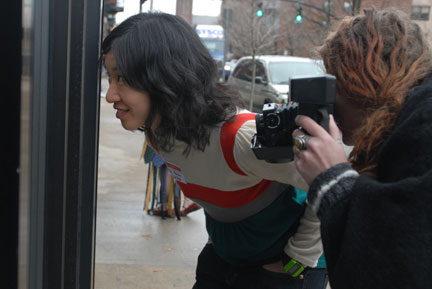
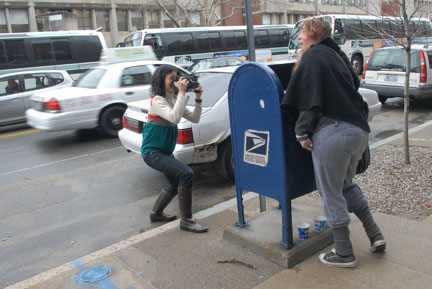
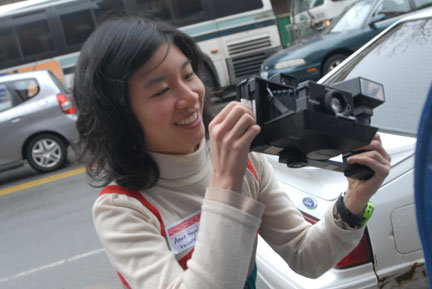
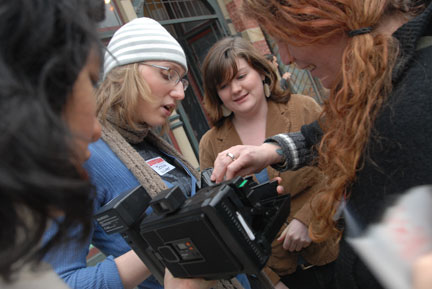
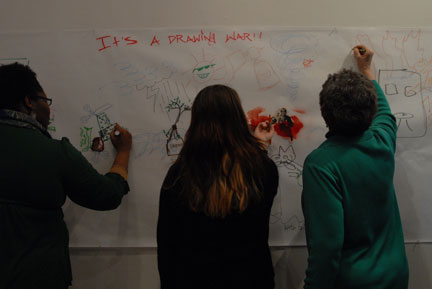
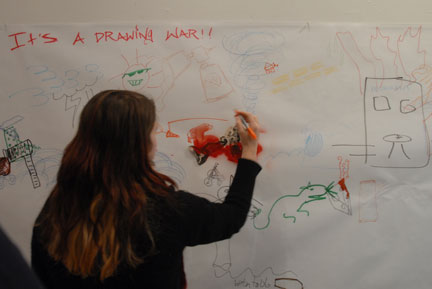
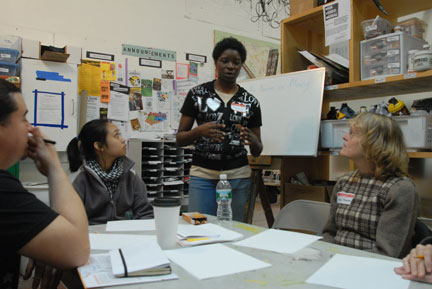
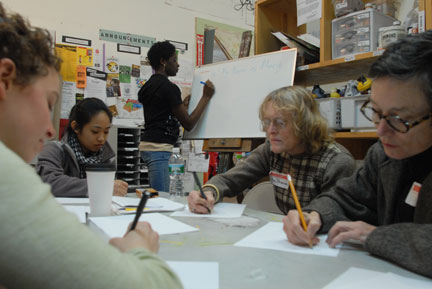
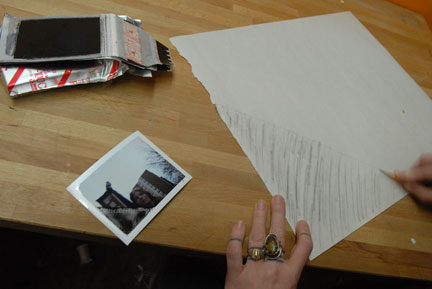

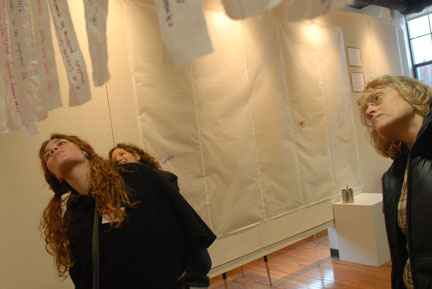
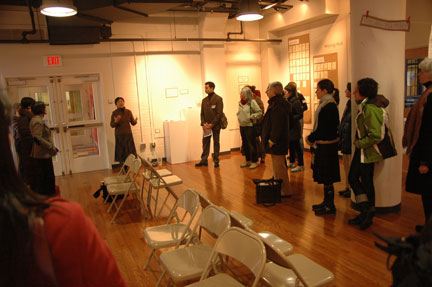
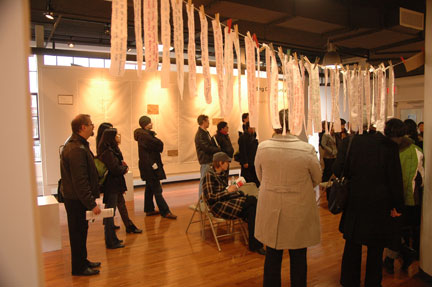
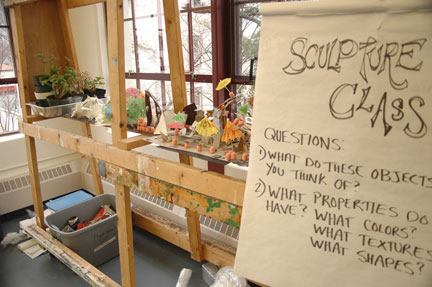
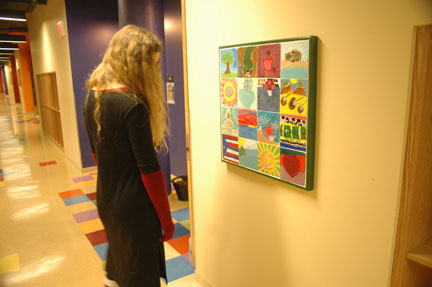
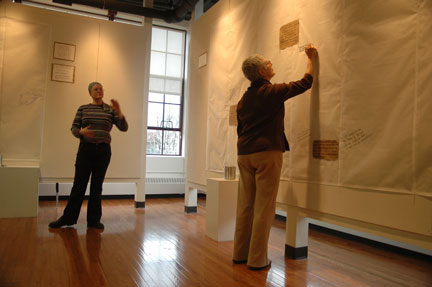
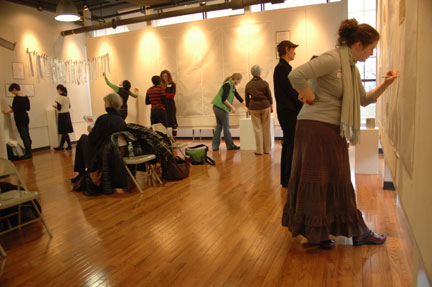
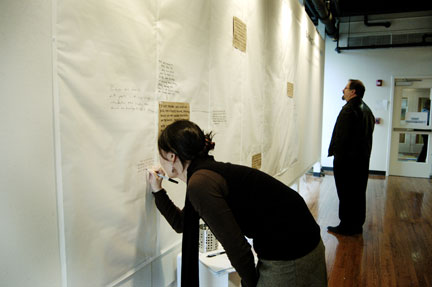
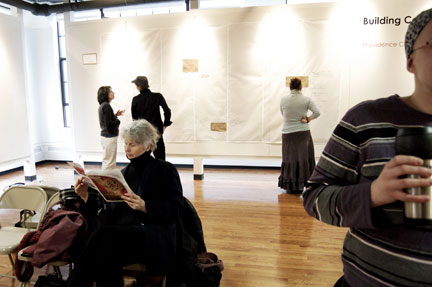
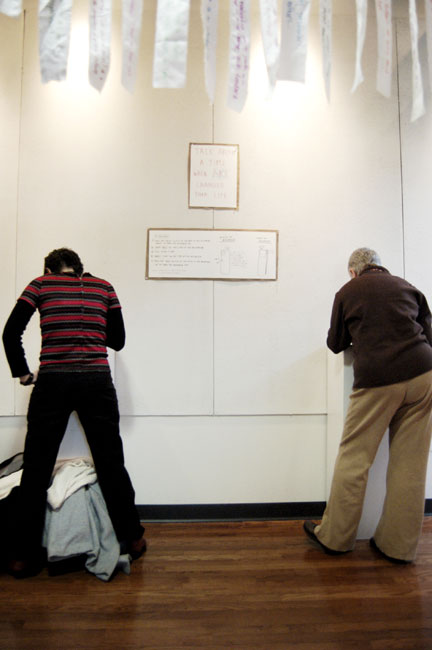
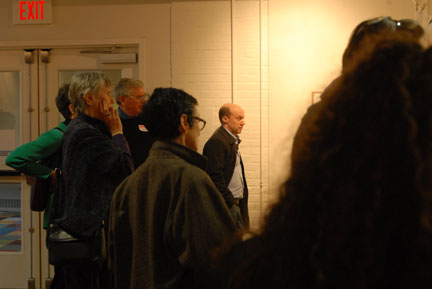
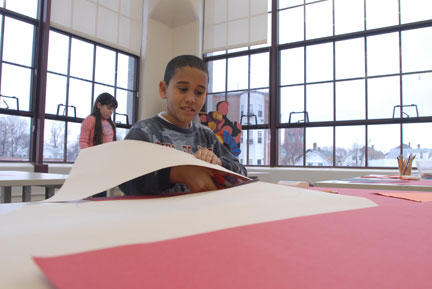
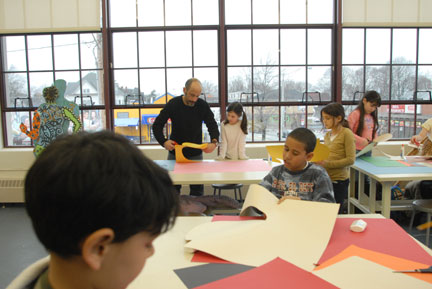
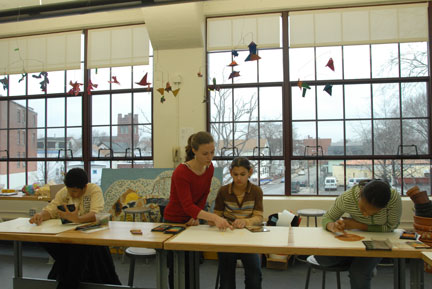
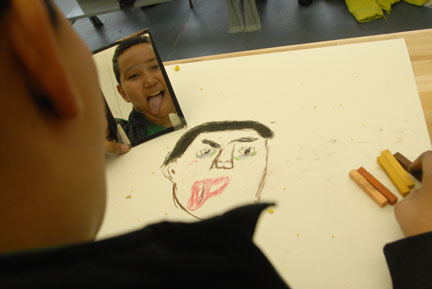
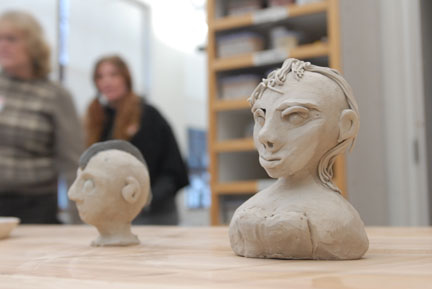
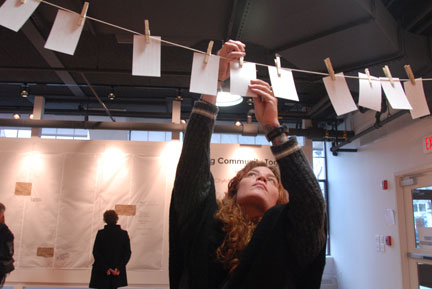
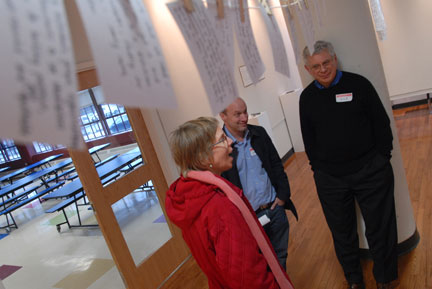
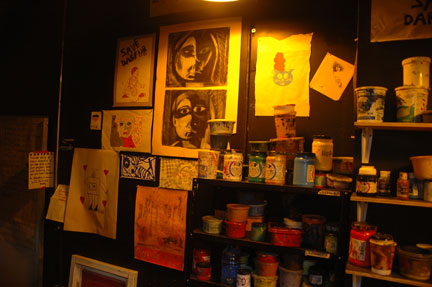
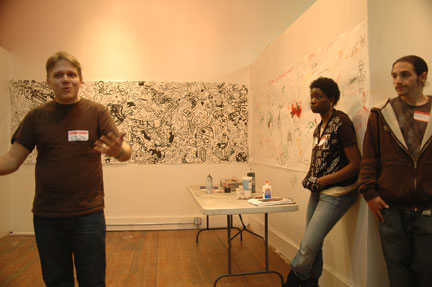
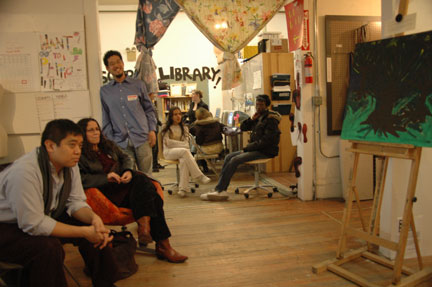
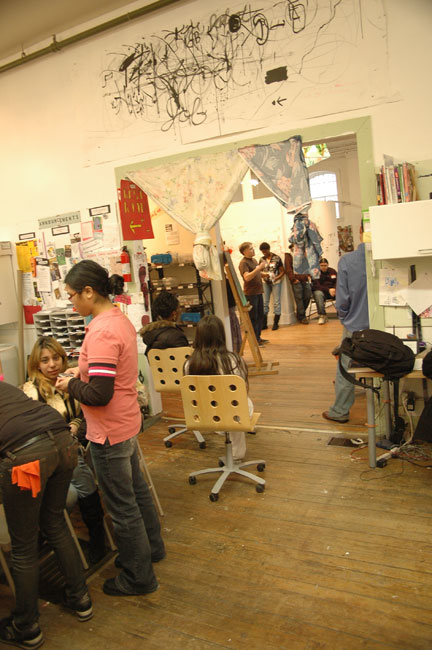
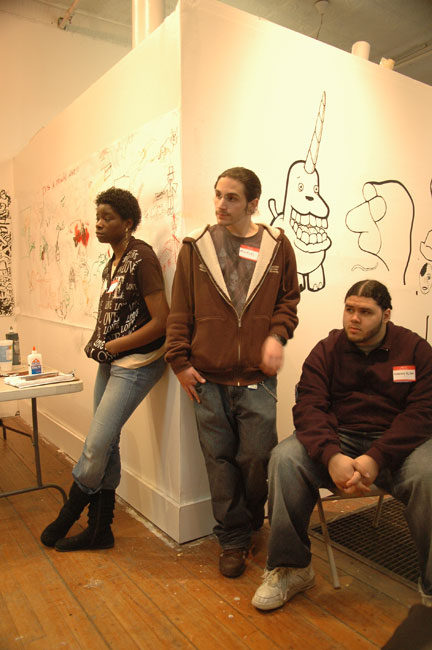
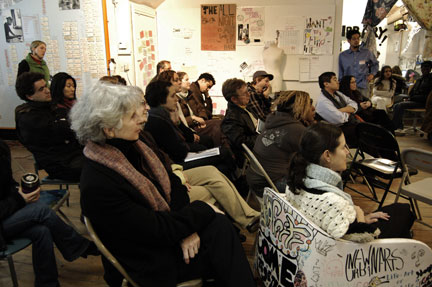
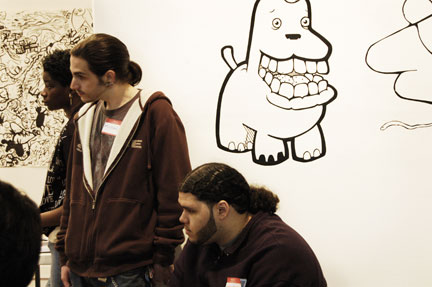
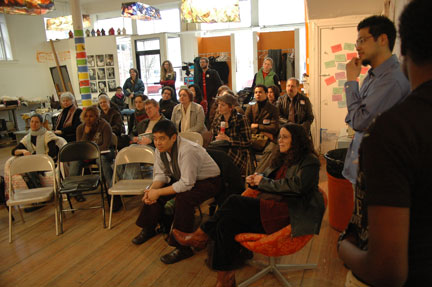
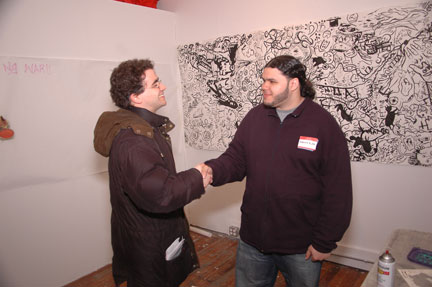
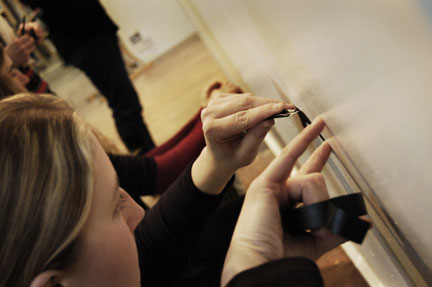
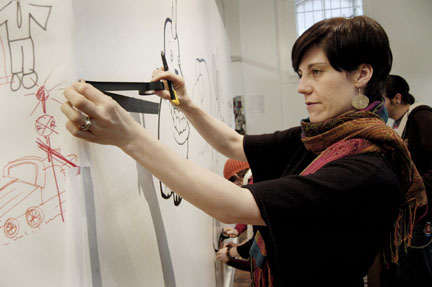
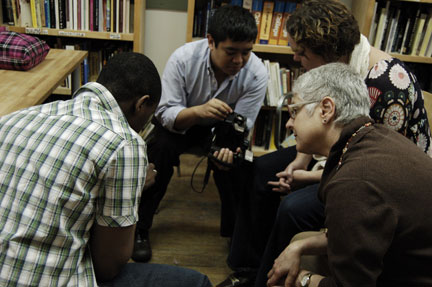
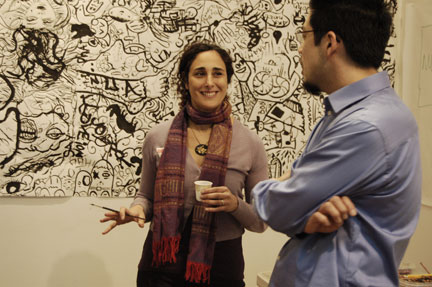
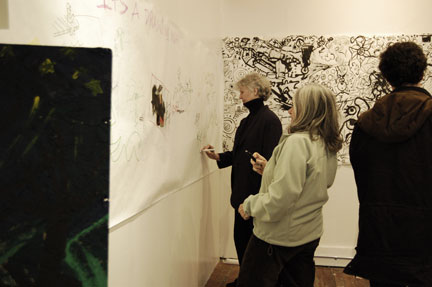
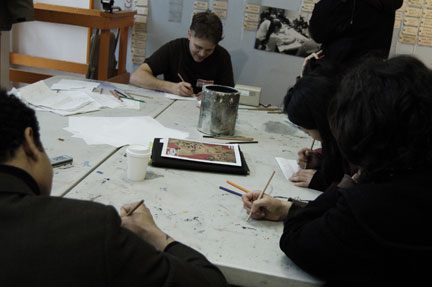
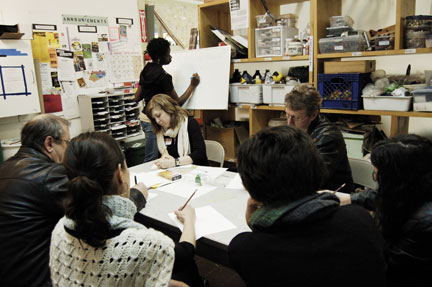
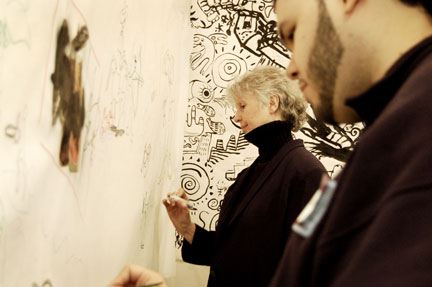
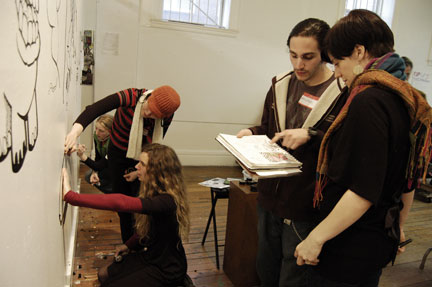
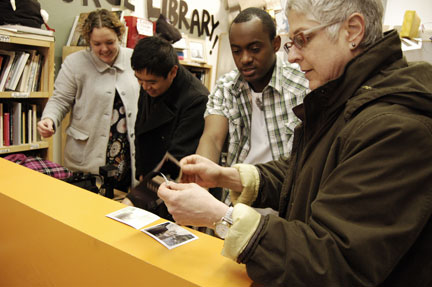
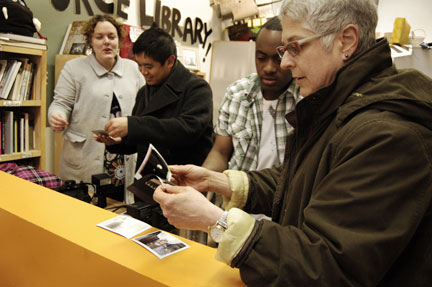
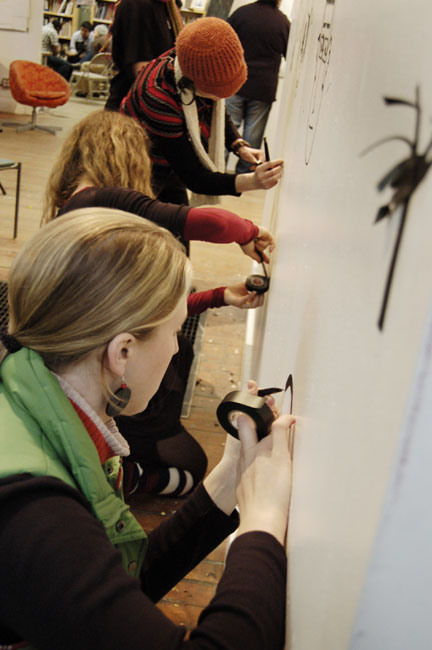
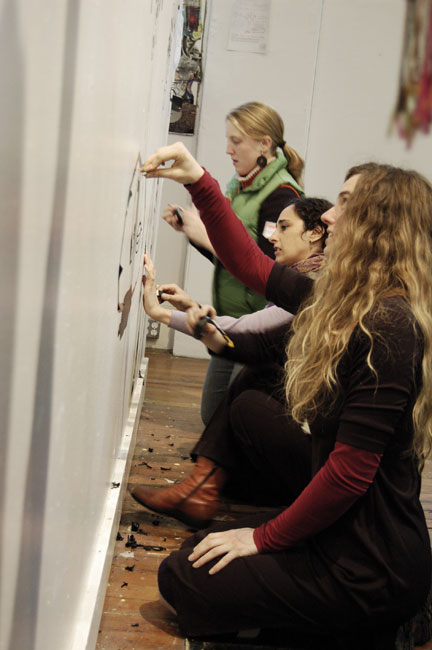
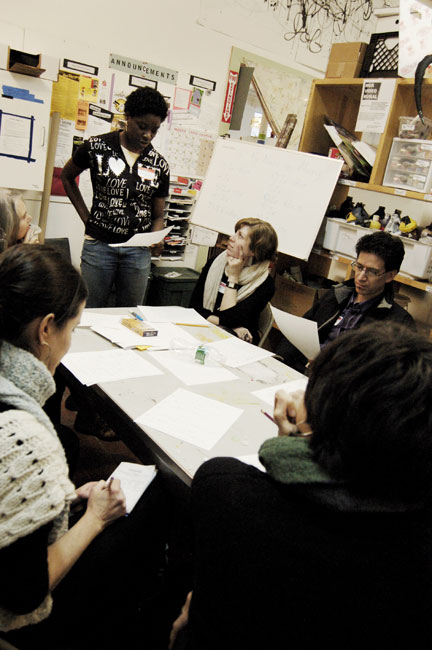
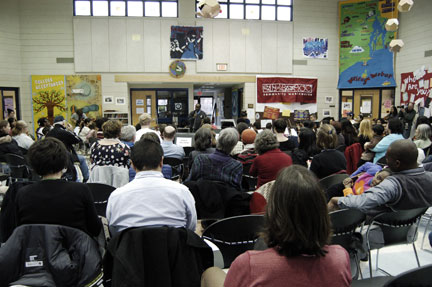
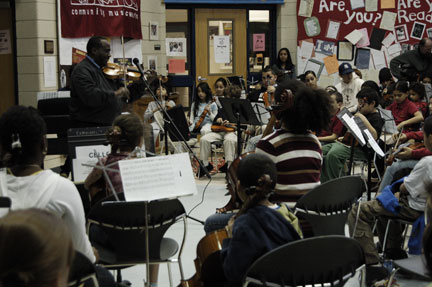
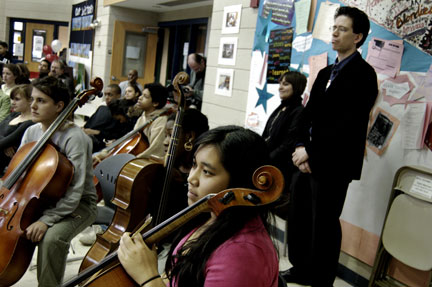
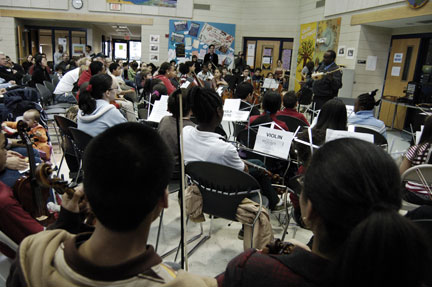
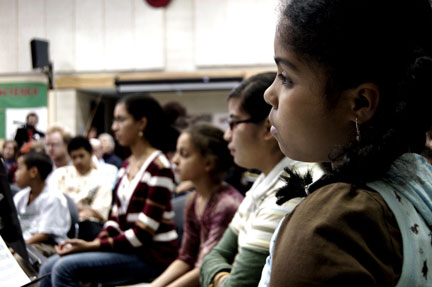
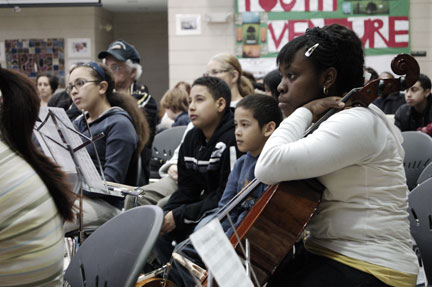
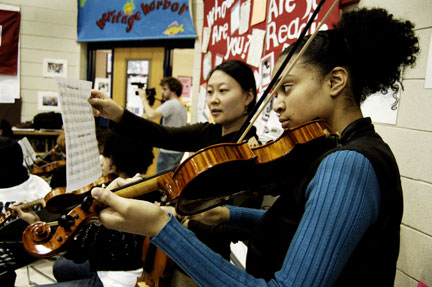
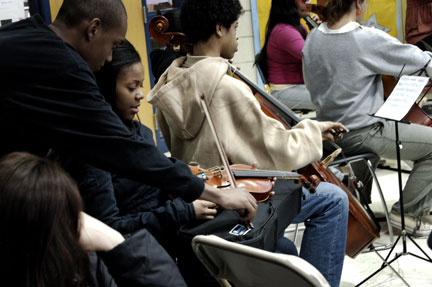
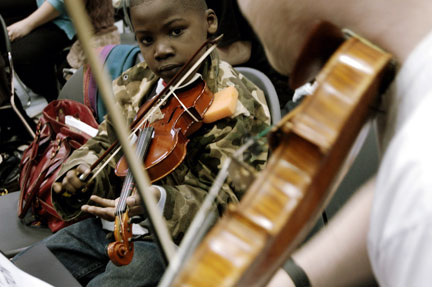
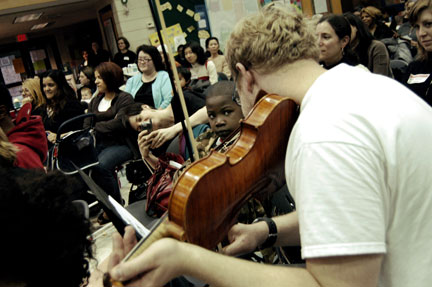
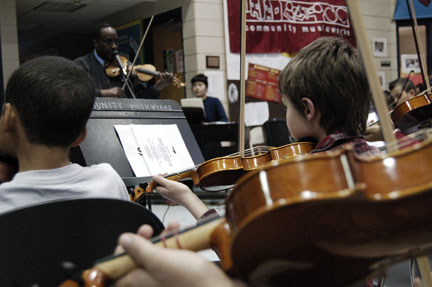
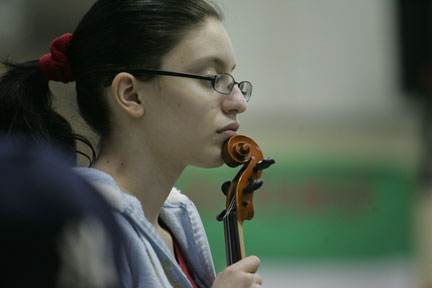
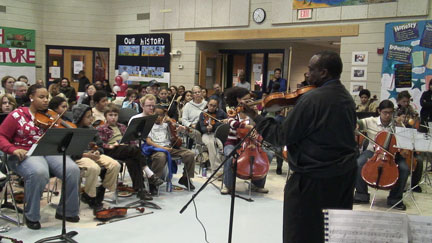
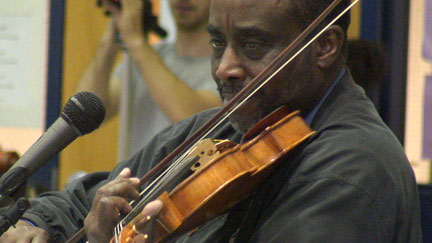
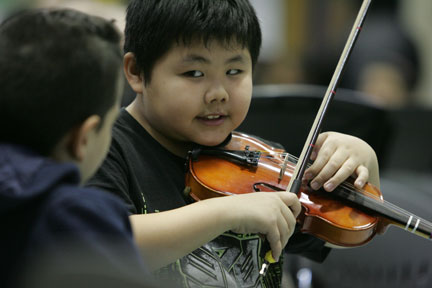
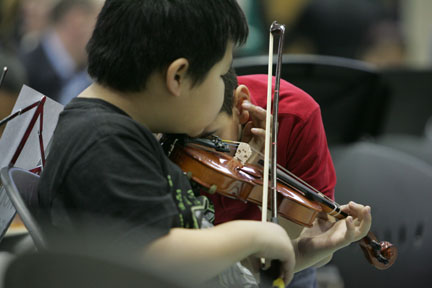
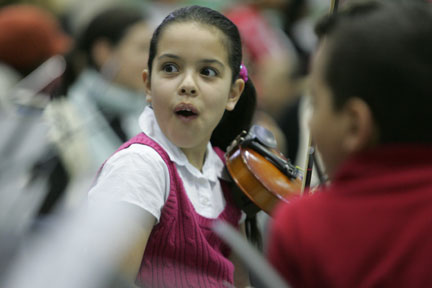
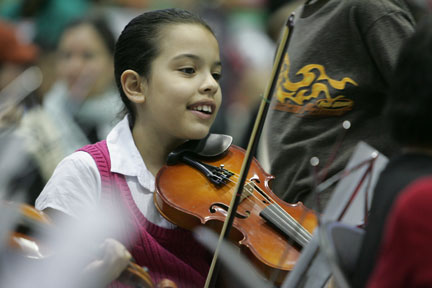

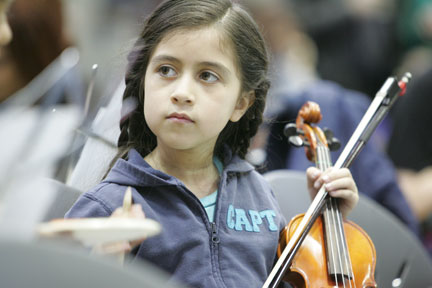
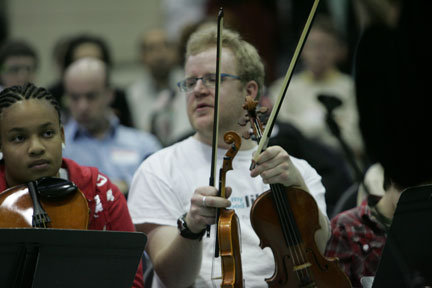
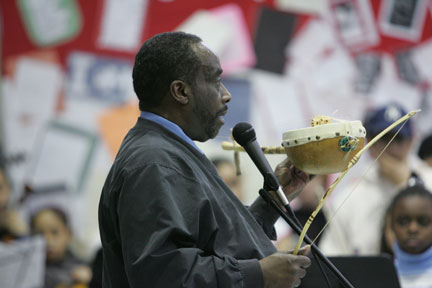
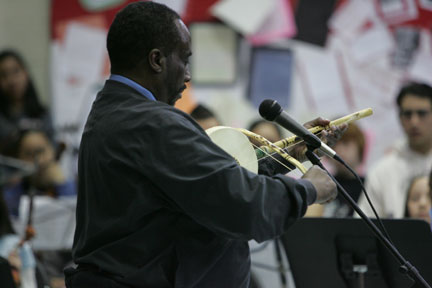
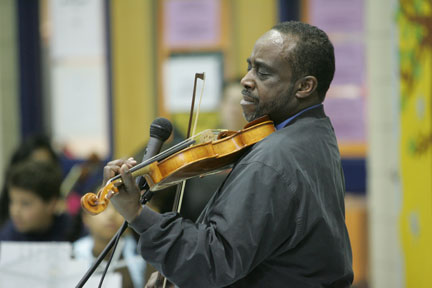
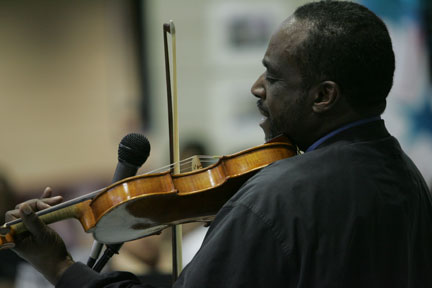
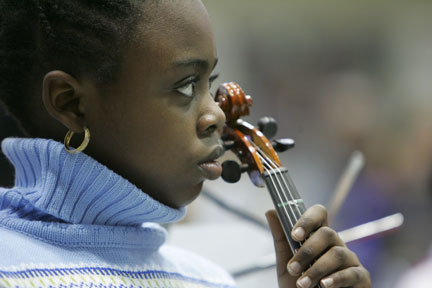
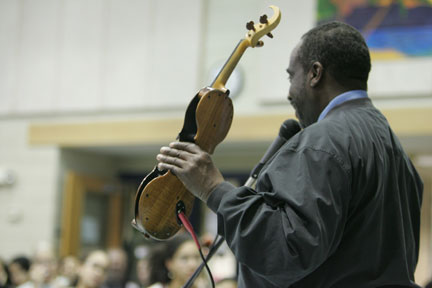
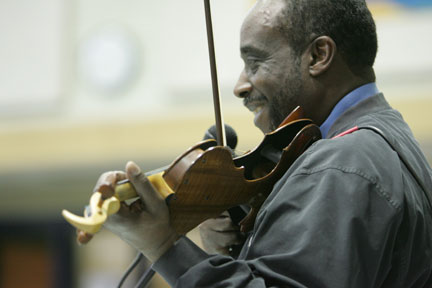
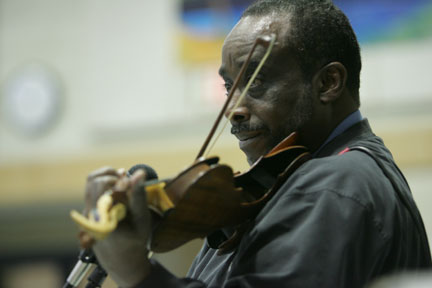

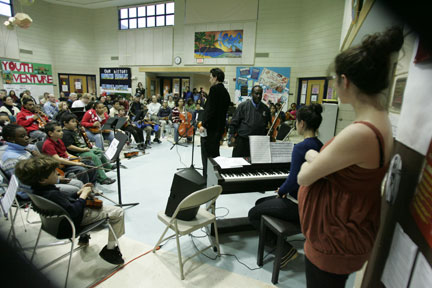
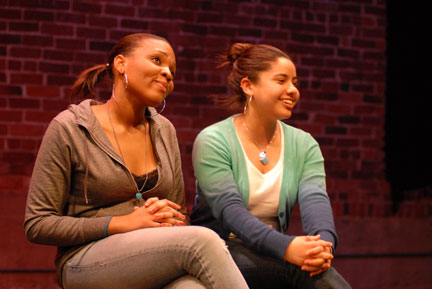
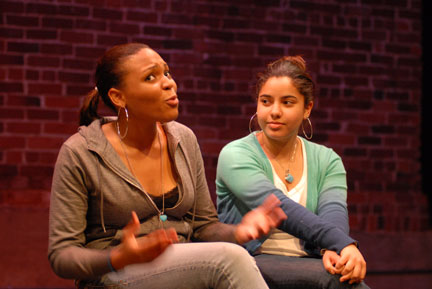
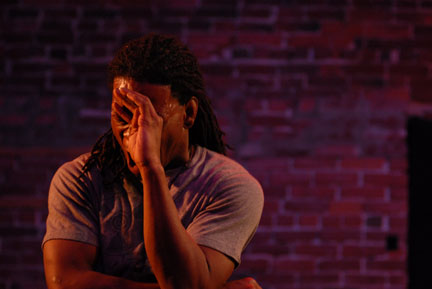
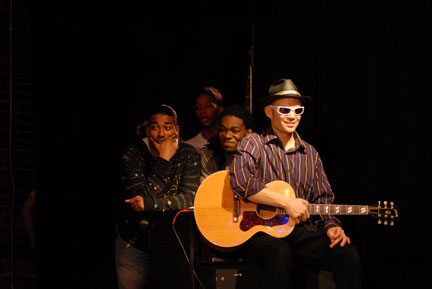
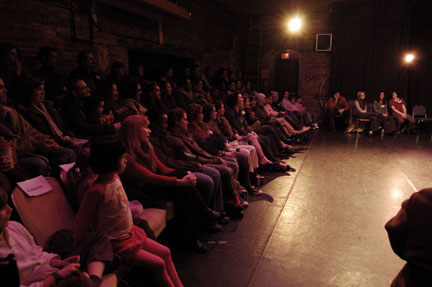
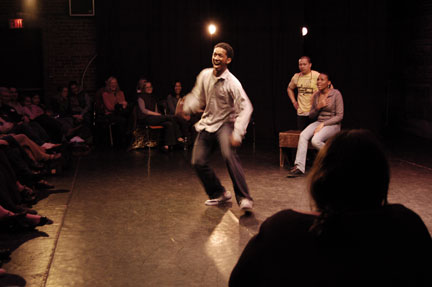
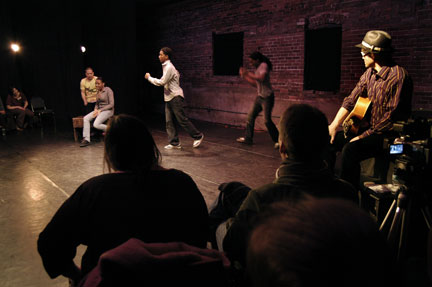
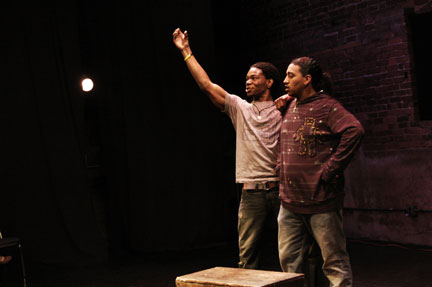
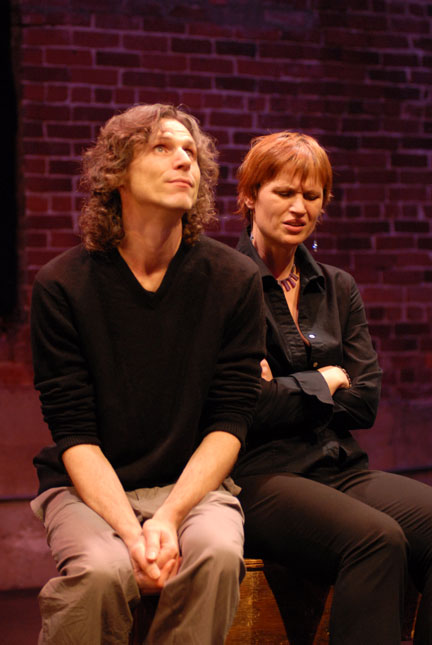
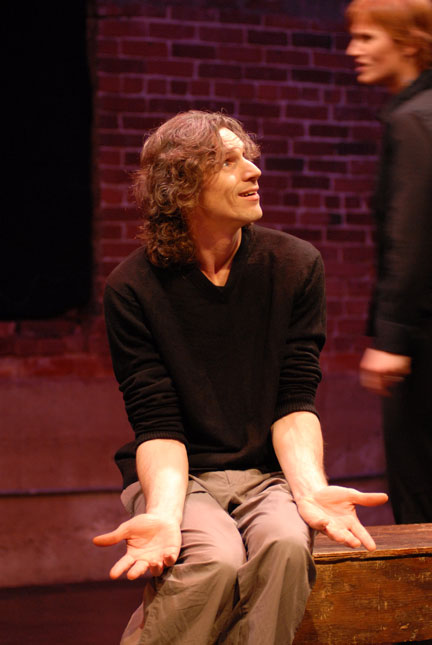
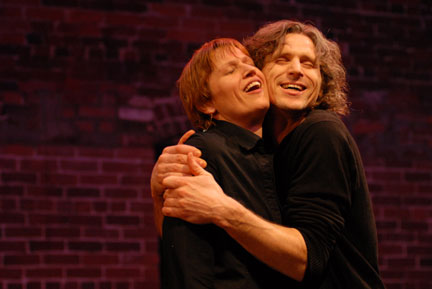
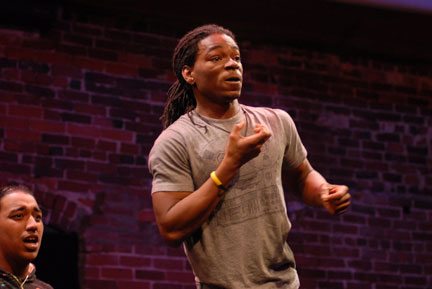
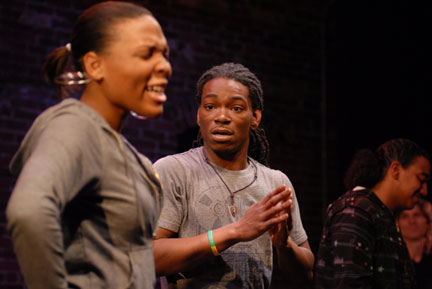
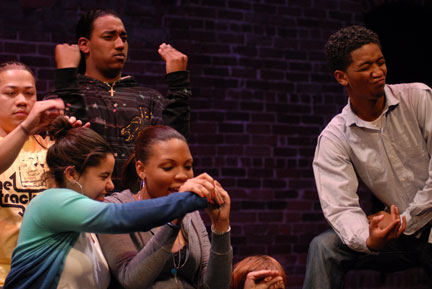
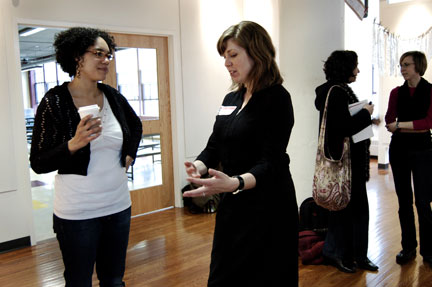
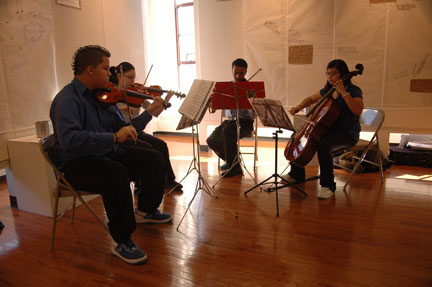

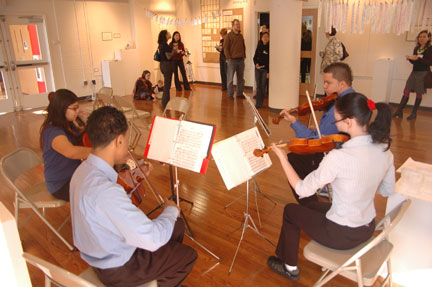


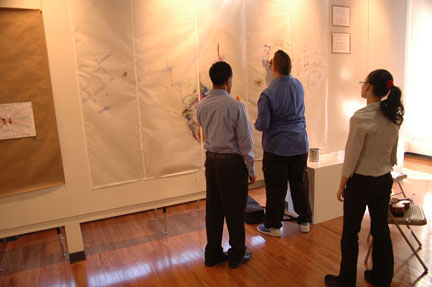
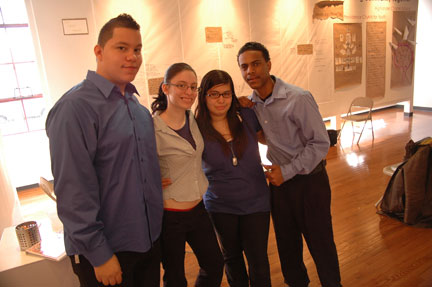
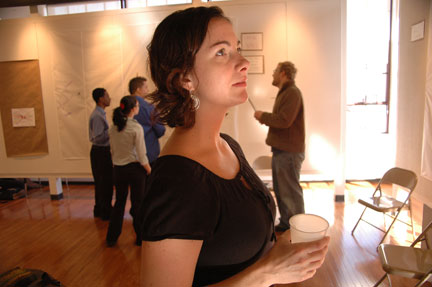
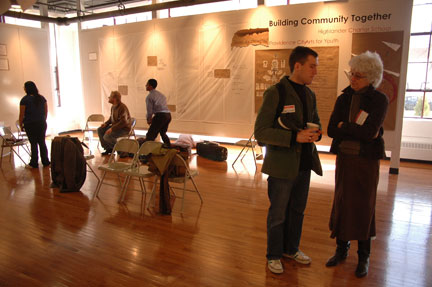
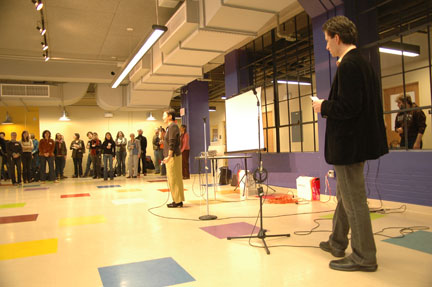
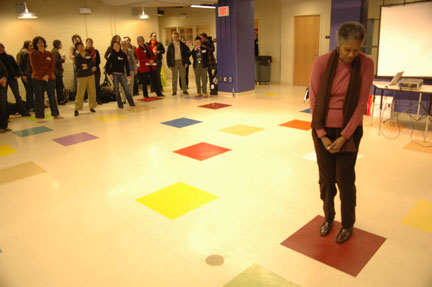
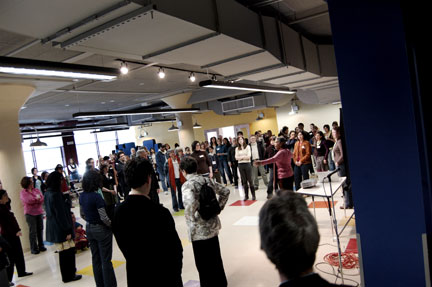
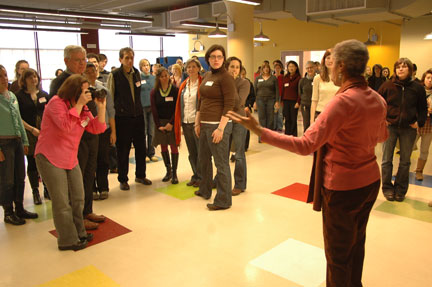
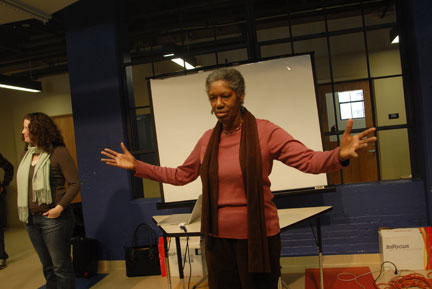
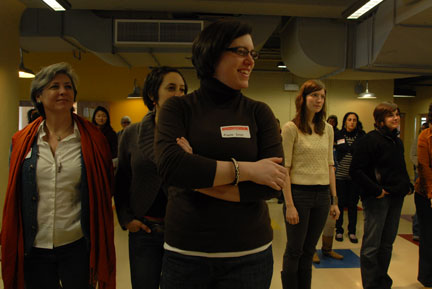

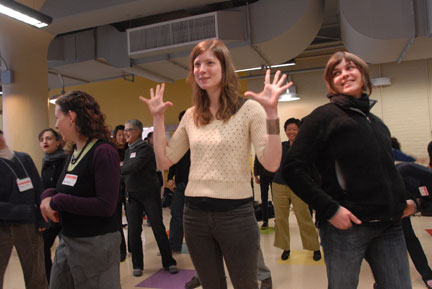
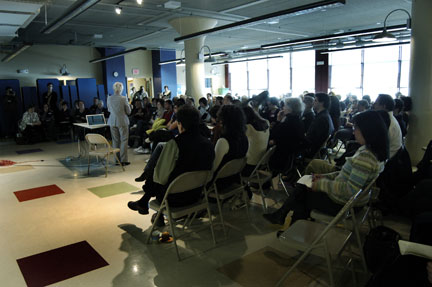
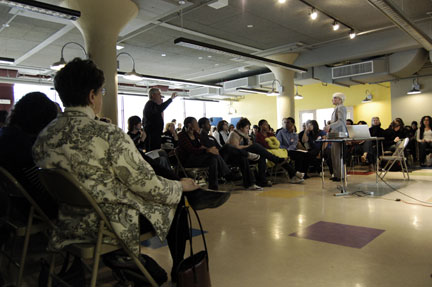
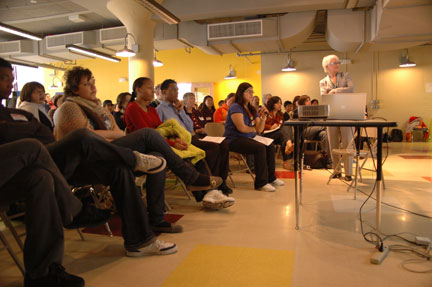
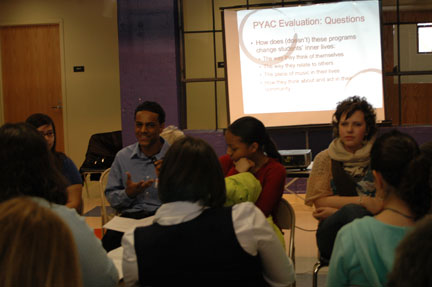
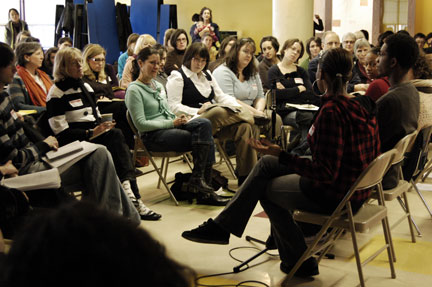
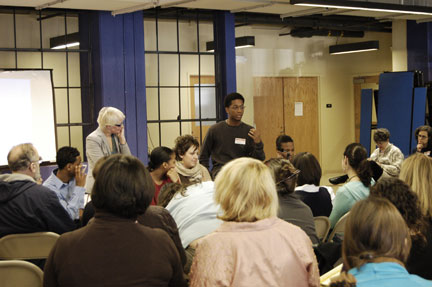
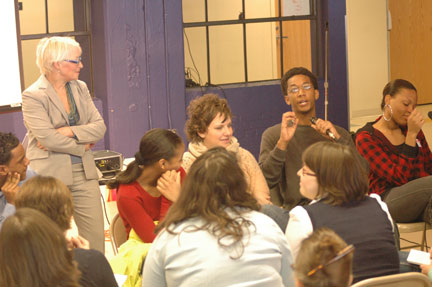
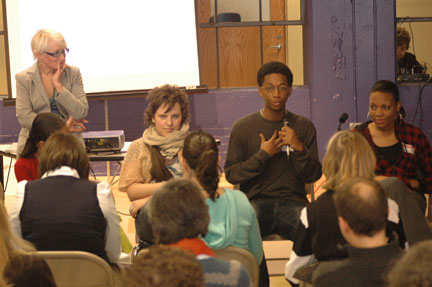
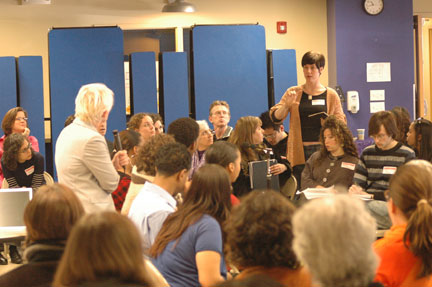
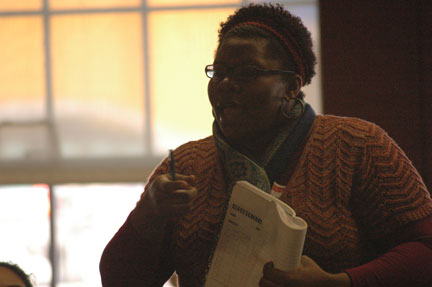
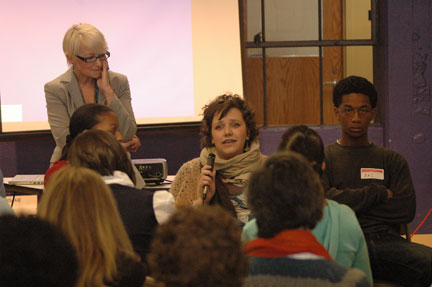
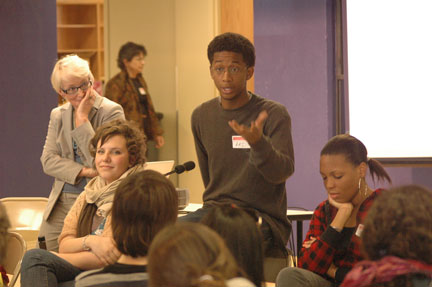
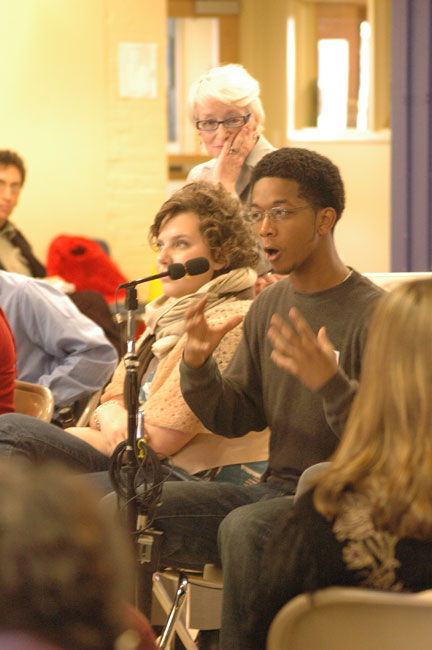
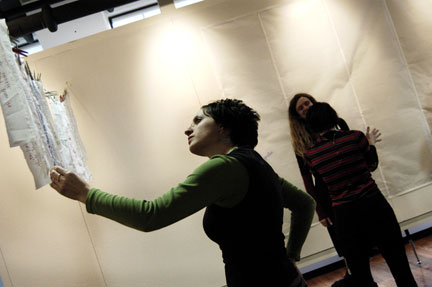
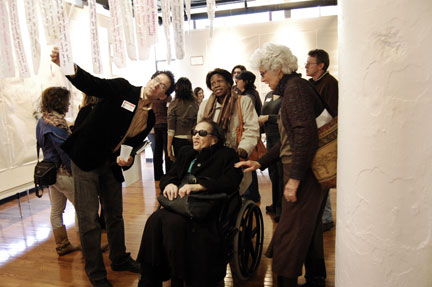
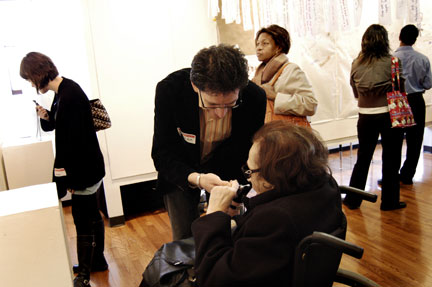
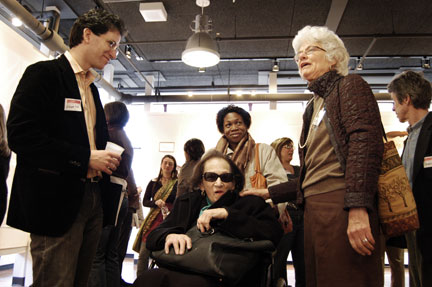
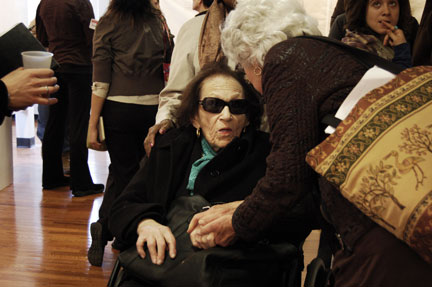
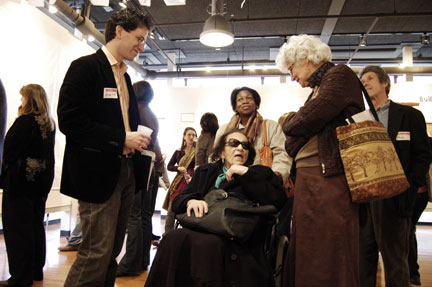
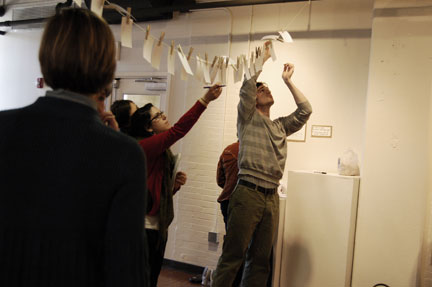
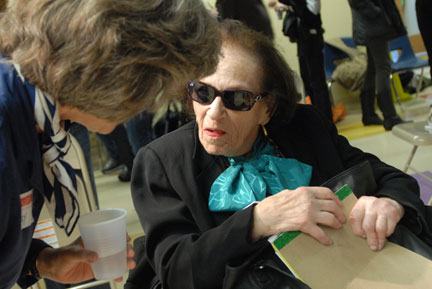
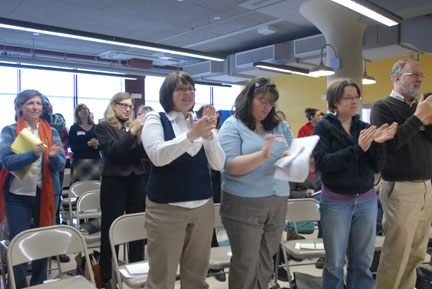
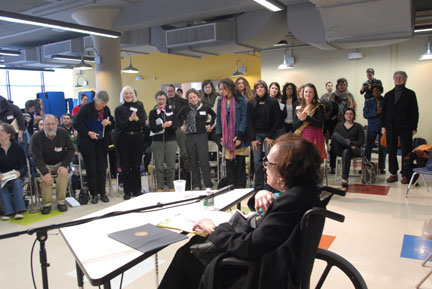
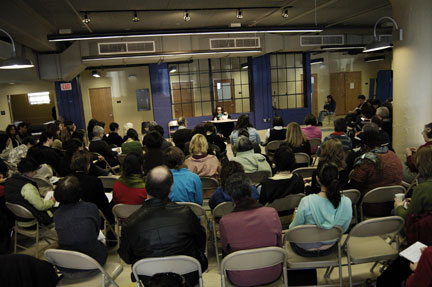
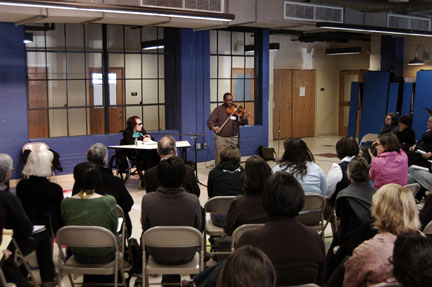
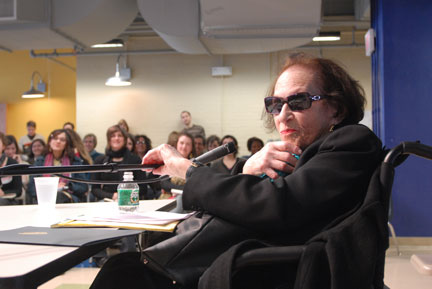
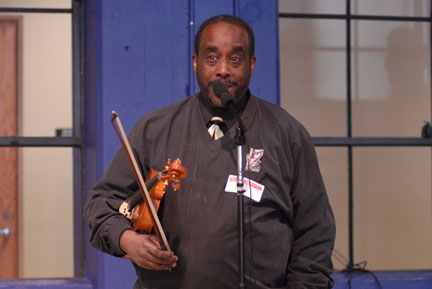
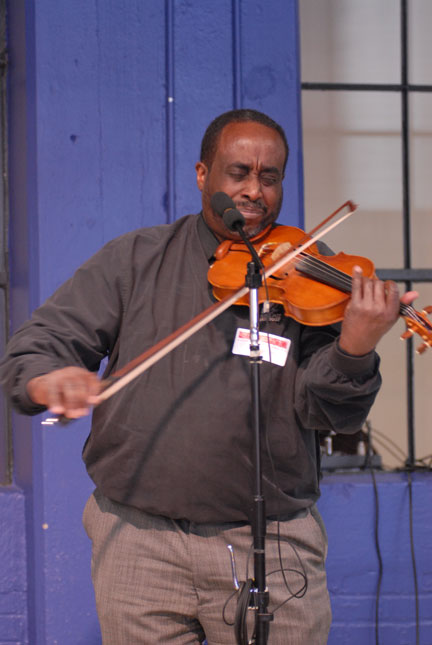
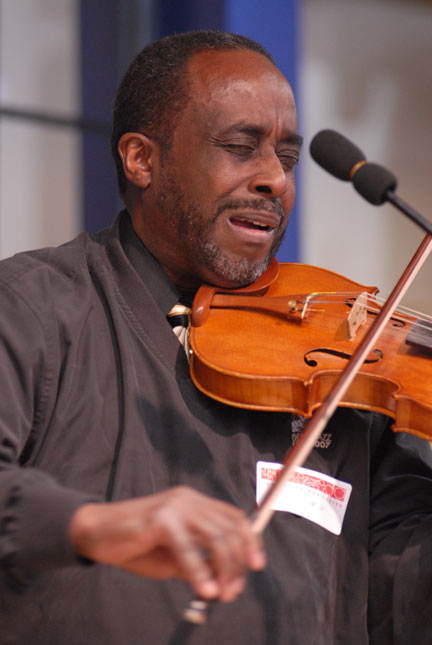
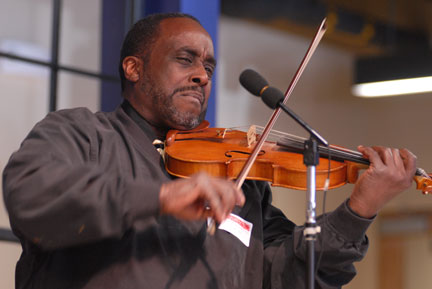
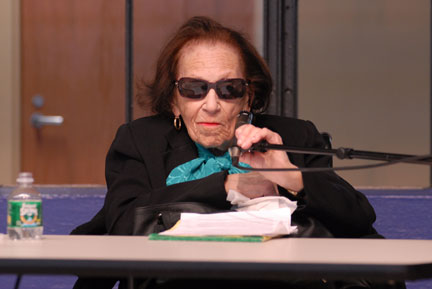
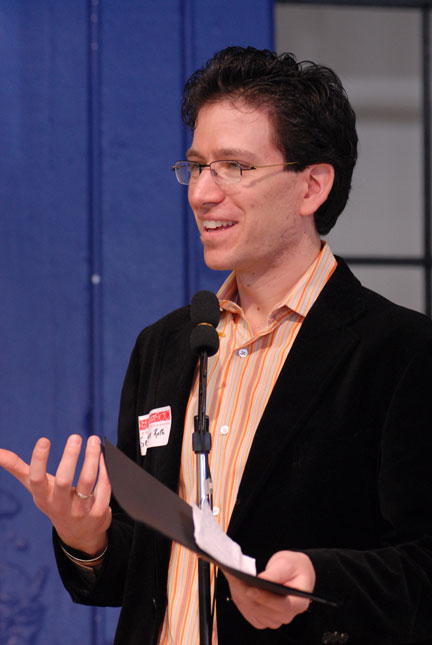
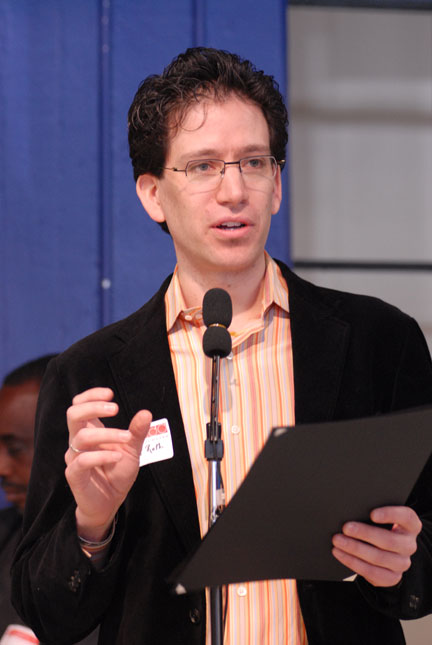
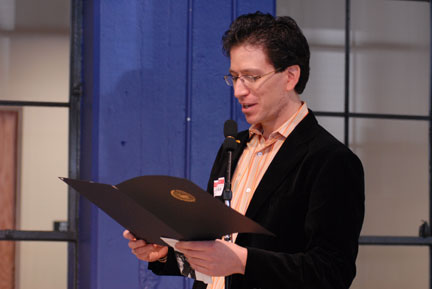
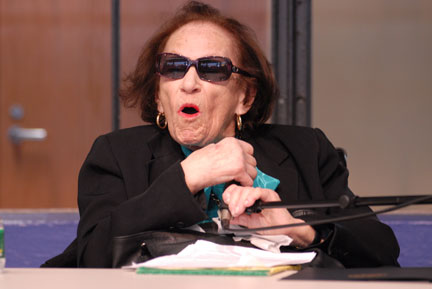 Mary Beth Meehan
Mary Beth Meehan